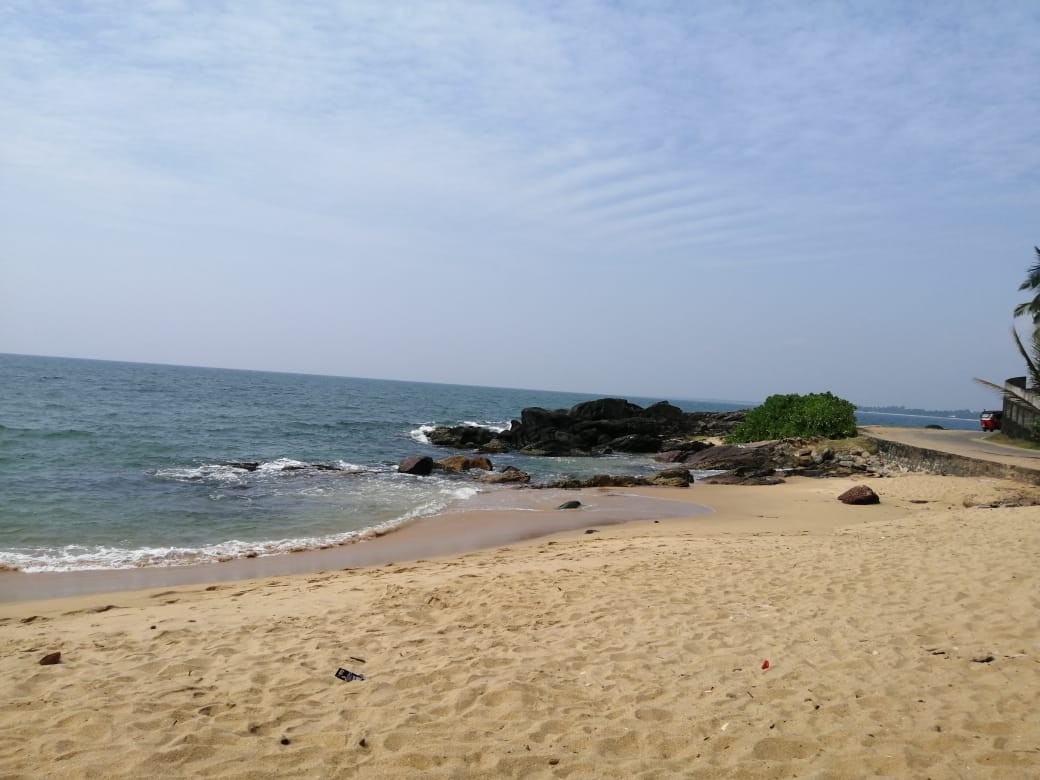
Life to Our Beaches Fuels the Clean Sri Lanka Campaign
Sri Lanka’s picturesque coastline is under threat from marine pollution and mismanaged waste, challenges that not only harm the environment but also undermine the country’s tourism and economic potential. In response, the Life to Our Beaches Project is making a tangible impact, creating cleaner, more resilient coastal areas while offering significant opportunities for the private sector to contribute to a sustainable future.
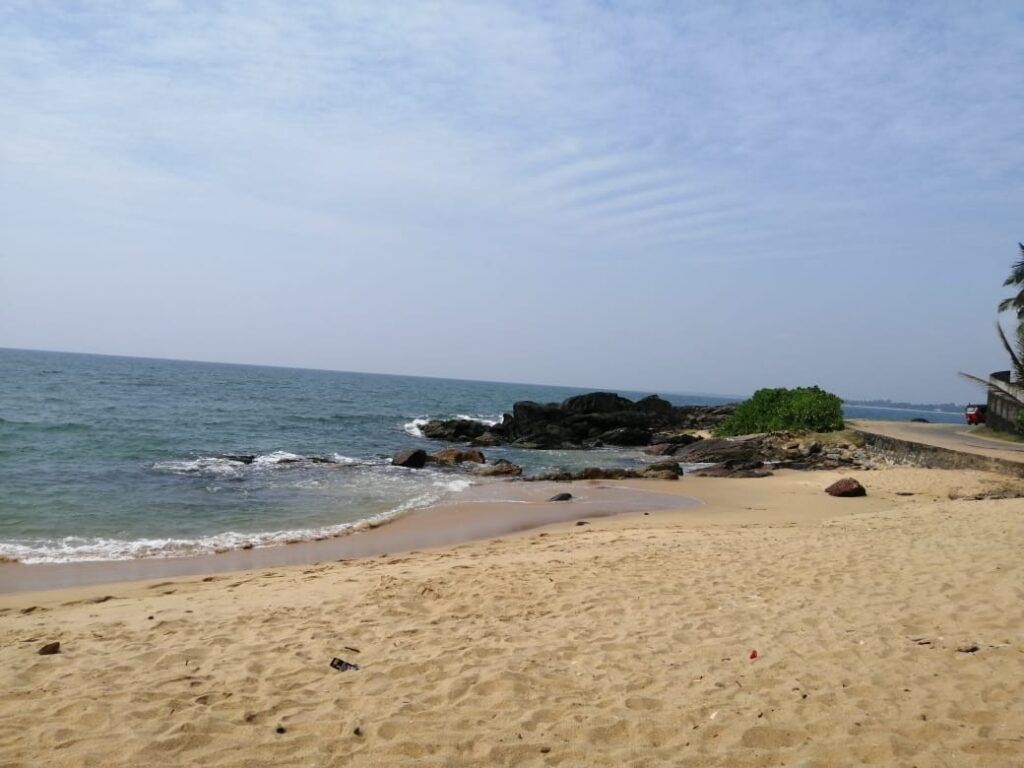
Cleaning Up for a Clean Sri Lanka
The Clean Sri Lanka campaign is now setting the national agenda for environmental stewardship, and the Life to Our Beaches Project is a shining example of such a vision in action. Two pilot projects, located at Kalutara’s Calido Beach and Beruwala’s Kechchimale Beach Park, have demonstrated how targeted interventions can restore the natural beauty of our coastal areas. At Calido Beach, a 500-meter stretch that was heavily polluted by waste from the Kalu River, concerted cleanup efforts led by a partnership between the Ministry of Environment, Biodiversity Sri Lanka (BSL), and Commercial Bank have resulted in the removal of over 1,586 kilograms of waste. Similarly, the Kechchimale Beach Park project in Beruwala, supported by the Bank of Ceylon, tackled pollution stemming from plastic waste and sewage from the local fishery harbor, removing 169 kilograms of debris.
Beyond environmental cleanup, these initiatives have also provided socio-economic benefits. Beach caretakers, who are predominantly from economically disadvantaged communities, have earned supplementary income through the recycling of waste. For example, the caretaker at Calido Beach generated earnings of LKR 35,585 through recyclable sales. Such outcomes not only contribute to a cleaner environment but also enhance livelihoods, underscoring the holistic benefits of sustainable beach management.
Opportunities for the Private Sector
For private sector players, the Life to Our Beaches Project represents more than just a charitable endeavor—it is a strategic opportunity to drive corporate social responsibility (CSR) initiatives, boost brand reputation, and contribute to the national Clean Sri Lanka campaign. Companies that invest in or sponsor these projects can benefit from enhanced visibility, positive community engagement, and alignment with global sustainability trends.
Leading financial institutions like Commercial Bank and the Bank of Ceylon have already set a precedent by supporting these initiatives. Their involvement demonstrates how aligning business strategies with environmental goals not only fulfills regulatory and CSR mandates but also opens up new avenues for innovation and growth. In today’s market, consumers and investors increasingly favor companies that are committed to environmental stewardship, and involvement in such projects can significantly enhance corporate image and competitiveness.

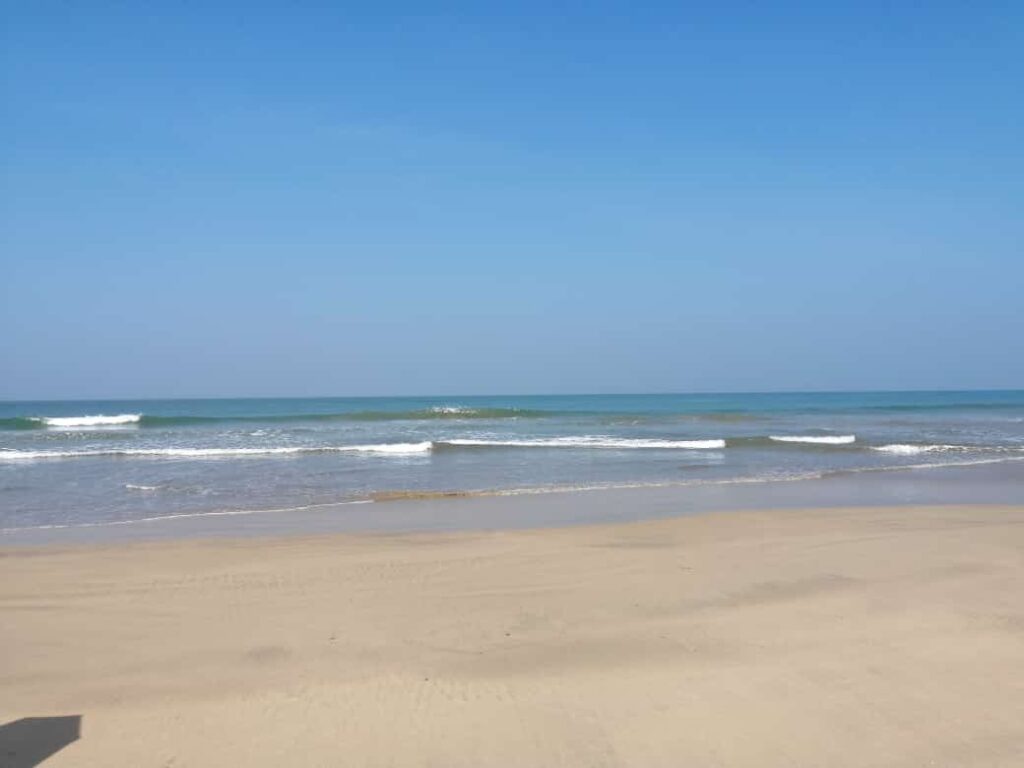
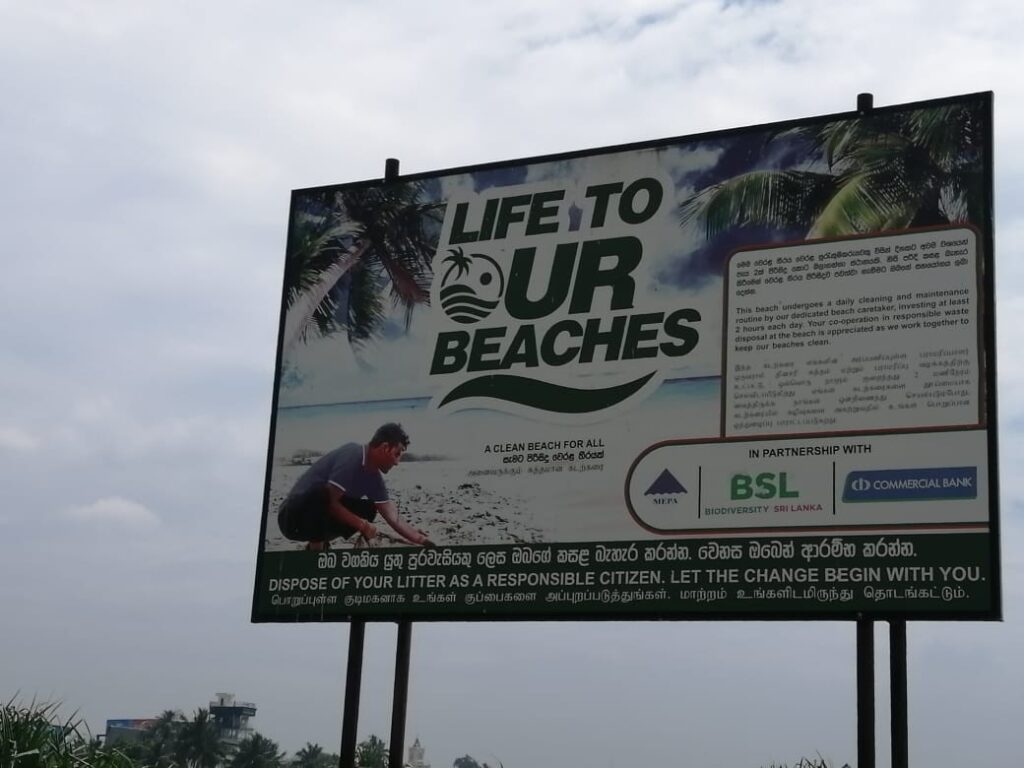
Scaling Up and Future Prospects
Building on the success of the pilot projects, the Life to Our Beaches Project is set to expand to new locations, including Kayankerni Beach in Batticaloa, Eastern Province. This expansion aims to replicate the successes seen at Calido Beach and Kechchimale Beach Park while addressing unique challenges specific to each coastal region. The new project in Batticaloa will focus on reducing plastic pollution, improving waste management systems, and empowering local communities through sustainable beach stewardship.
Moreover, future efforts will include continuous training for beach caretakers to enhance their operational efficiency, structured recruitment and retention strategies to maintain long-term commitment, and the launch of media campaigns to boost public awareness and attract further corporate support. By scaling up these initiatives, the programme aims to create a network of clean and sustainable beaches across Sri Lanka, contributing significantly to the Clean Sri Lanka campaign and setting a benchmark for environmental responsibility in the private sector.
A Call to Action for Sustainable Impact
The transformation of Sri Lanka’s coastlines through the Life to Our Beaches Project exemplifies how coordinated efforts between government, NGOs, and the private sector can lead to measurable environmental and socio-economic improvements. For the private sector, this initiative offers a unique platform to drive innovation in waste management, foster sustainable business practices, and demonstrate a commitment to the nation’s environmental goals.
As Sri Lanka strives towards a cleaner, more sustainable future, the active participation of private companies is crucial. By investing in these projects, businesses can not only help protect one of the country’s most valuable natural assets but also contribute to the broader national agenda of a Clean Sri Lanka. In doing so, they will not only reap economic and reputational benefits but also play a pivotal role in shaping a greener, more resilient future for all.
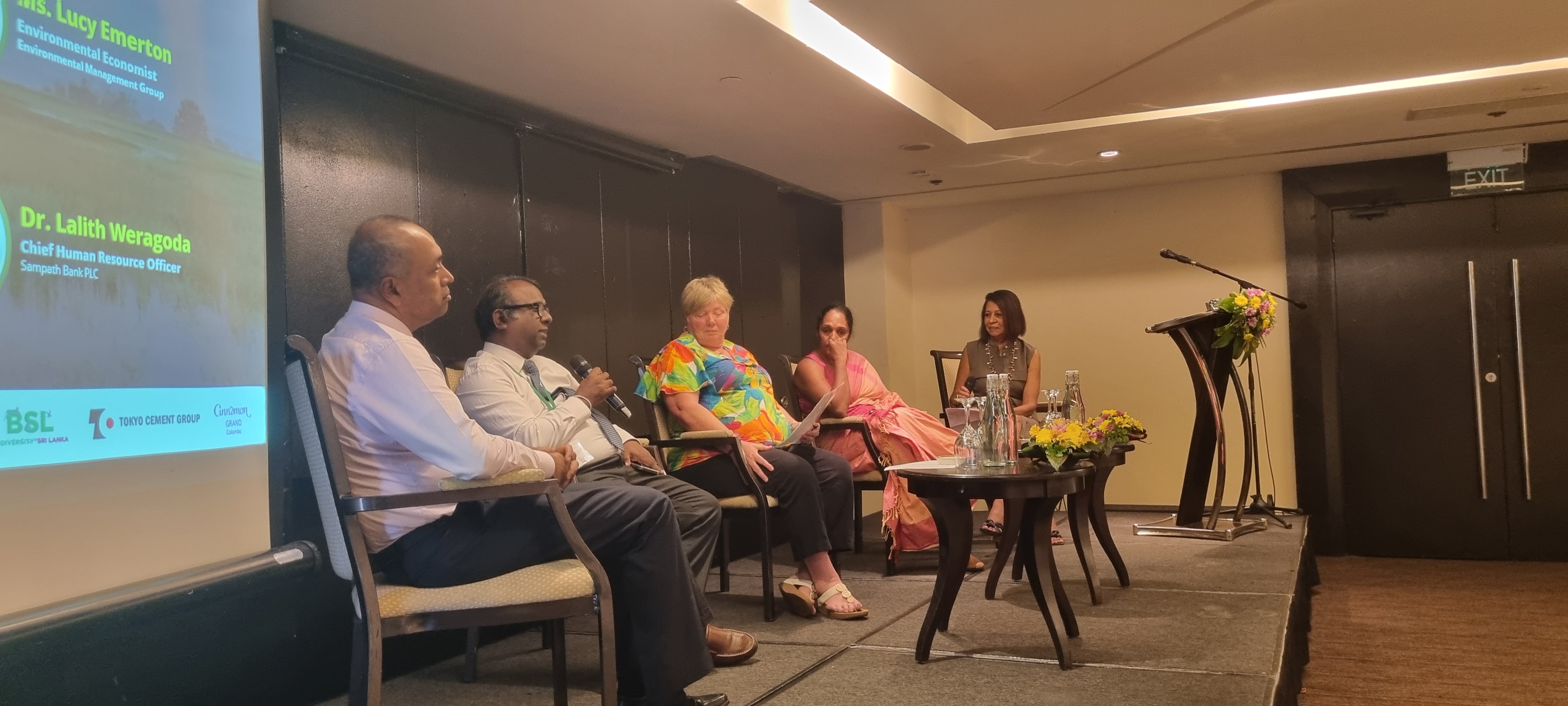
World Wetland Day Celebrations 2025: A Unified Effort to Protect Vital Ecosystems
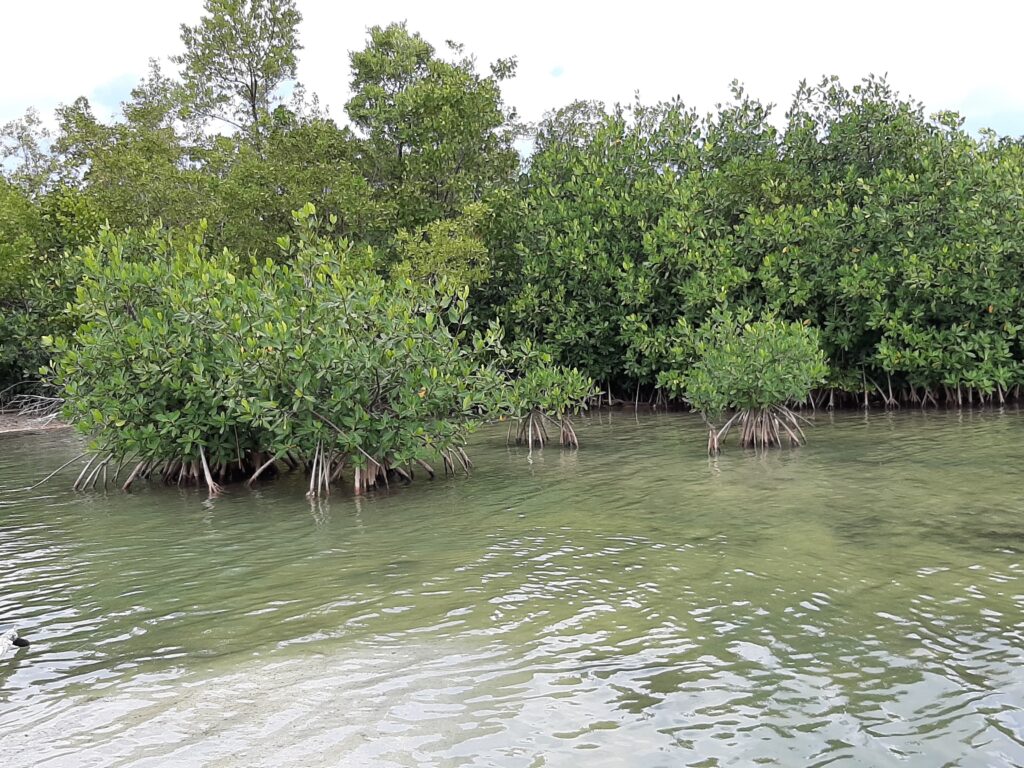
On 5th and 6th February 2025, Sri Lanka joined the global community in celebrating World Wetlands Day, under the theme “Protecting Wetlands for Our Common Future”. This theme is particularly pertinent to Sri Lanka, a nation endowed with diverse wetland ecosystems that are vital for ecological balance and community livelihoods. Wetlands in Sri Lanka serve as habitats for numerous endemic species, support agriculture and fisheries, and act as natural defenses against flooding and erosion. However, these ecosystems face threats from urbanization, pollution, and climate change. The theme calls for collective action to safeguard these invaluable resources, ensuring they continue to benefit both nature and society. In alignment with this global initiative, Biodiversity Sri Lanka (BSL), in partnership with Cinnamon Grand Colombo, Tokyo Cement Group, Dole Lanka, and Cargills Ceylon PLC, orchestrated a series of events aimed at raising awareness and fostering collaborative conservation efforts.
Engaging the private sector
At the Cinnamon Grand Colombo, BSL, in partnership with the Tokyo Cement Group, hosted a high-level panel discussion focusing on Green Finance for Wetland Conservation on 6th February 2025. The forum convened experts from finance, environmental science, and policy-making sectors to explore sustainable funding mechanisms for wetland preservation. Discussions highlighted the economic valuation of wetlands and the integration of green finance into national strategies, emphasizing the necessity of public-private partnerships in mobilizing resources for conservation.
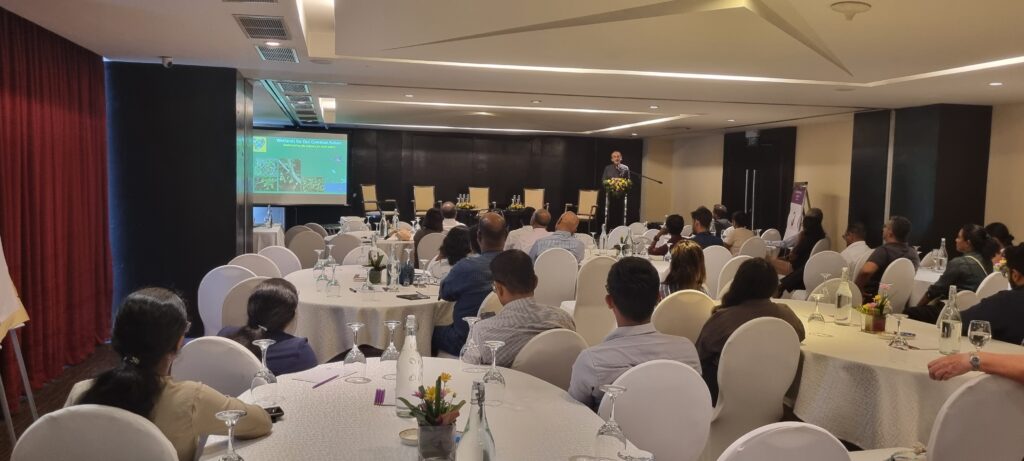
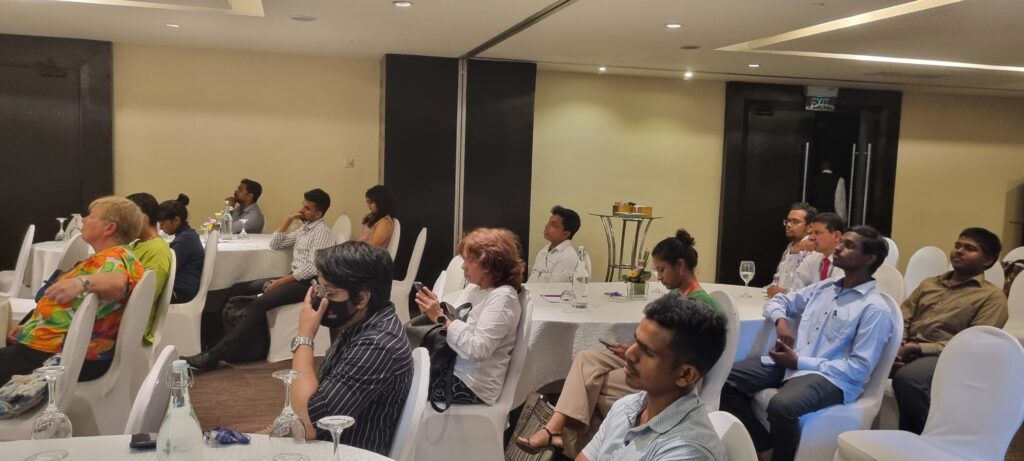
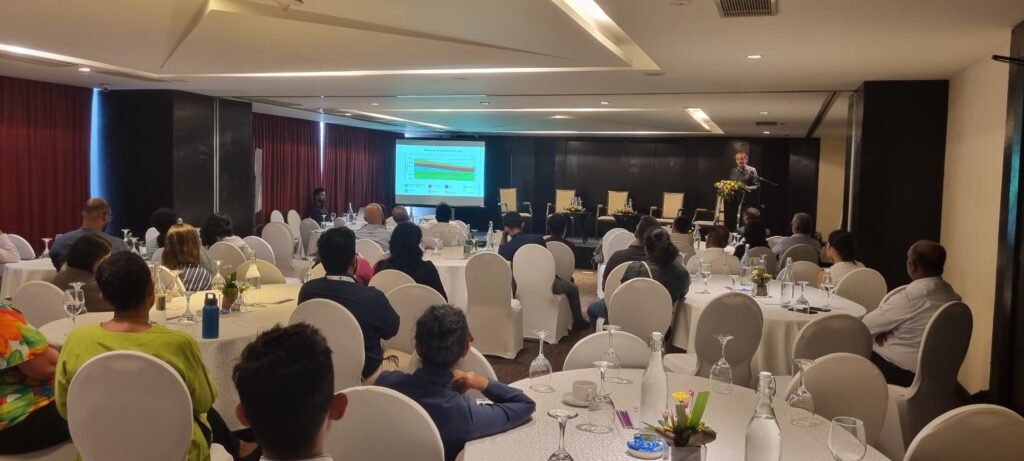
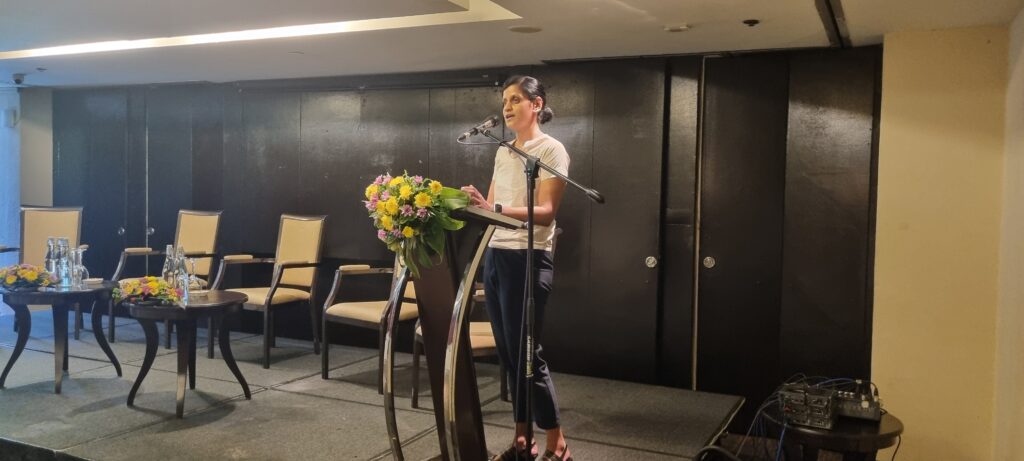
Key speakers at the event:
Ms. Chaturangi Wickramaratne (Researcher – Freshwater Ecologist, IWMI) highlighted how wetlands contribute to both ecological and economic stability, emphasizing the need for green finance integration into national economic strategies.
An interesting panel discussion was held moderated by BSL’s Senior Technical Advisor Ms Shiranee Yasaratne. The panelists included:
- Environmental Economist Lucy Emerton, who discussed the economic valuation of wetlands as a means of strengthening conservation policies.
- Nishantha Edirisinghe (Conservator General of Forests), who elaborated on Sri Lanka’s policy framework for wetland and mangrove conservation, focusing on the role of carbon offsetting initiatives.
- Professor Sewwandi Jayakody (Wayamba University), who explained how wetlands contribute to biodiversity conservation and climate resilience.
- Dr. Lalith Weragoda (Sampath Bank), who emphasized the growing role of the private sector in financing sustainable wetland conservation projects.
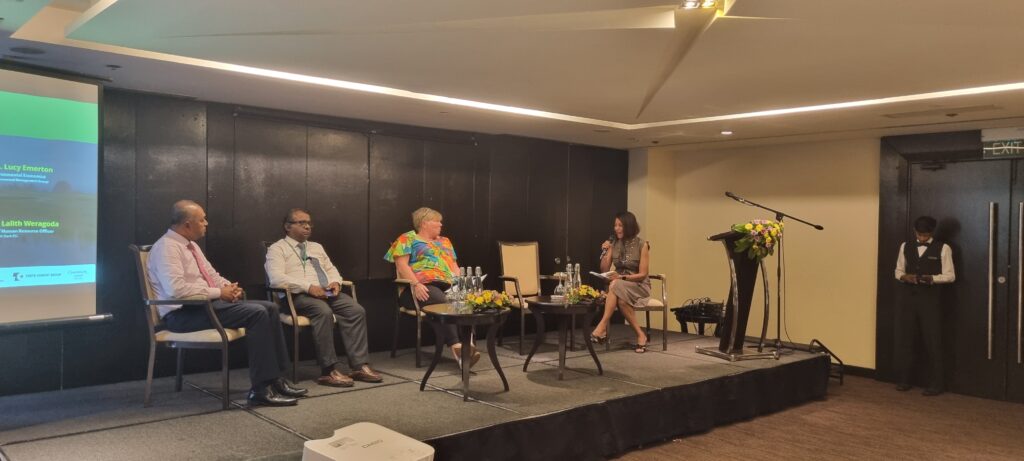
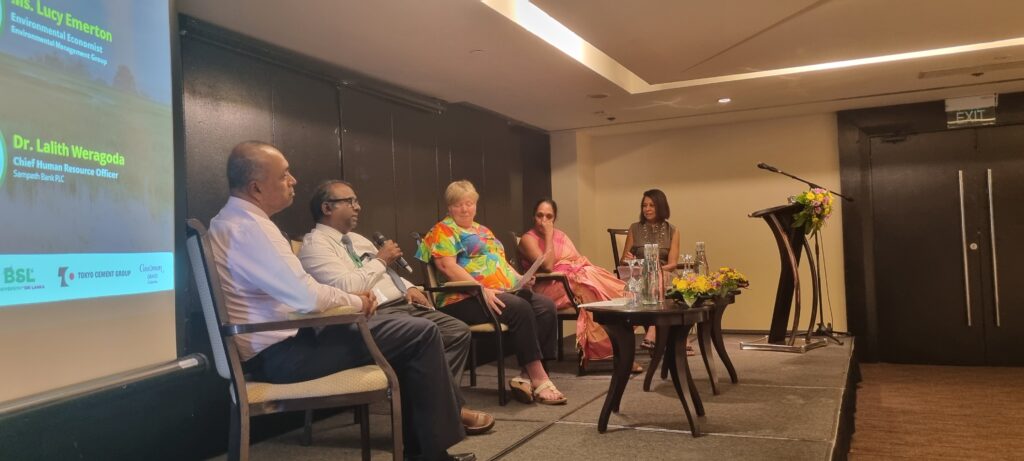
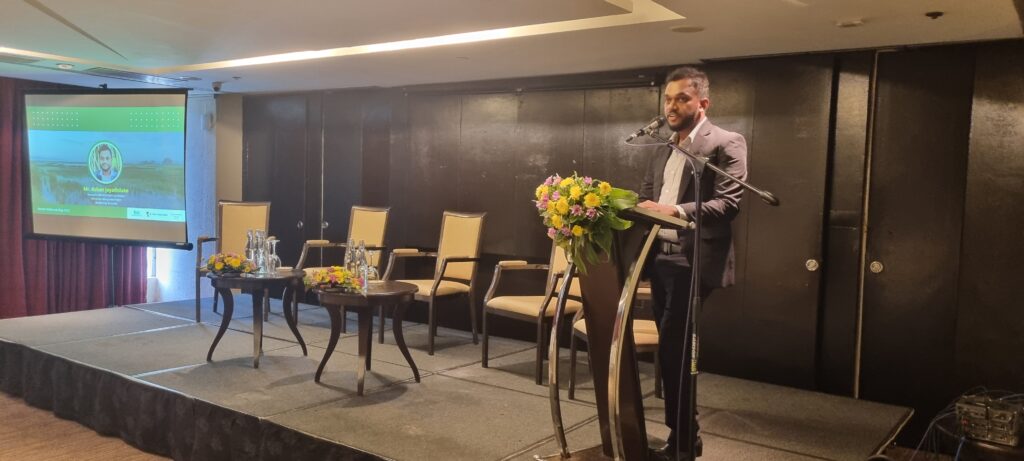
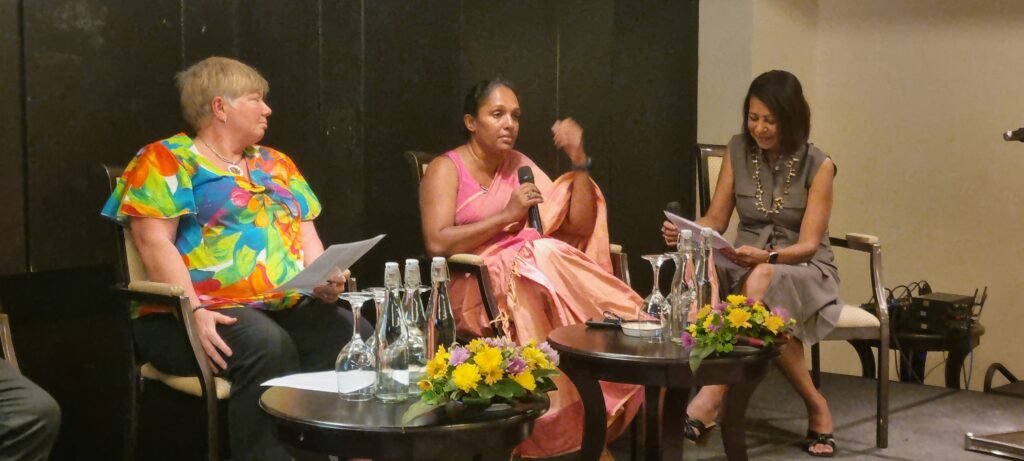
A Call for Stronger Public-Private Collaboration
The discussions stressed the importance of aligning Sri Lanka’s conservation goals with nature-based solutions, carbon offset strategies, and sustainable finance models. A key takeaway was the need for enhanced collaboration between policymakers, financial institutions, and conservation experts to ensure the long-term protection of wetlands. The event concluded with a call to action for increased investment in wetland restoration, stronger policy support, and innovative financial mechanisms to bridge conservation efforts with economic sustainability.
Looking Ahead: A Commitment to Conservation
The events organized by BSL exemplify a holistic approach to wetland conservation, combining education, financial investment, and policy dialogue. By aligning local initiatives with the global theme, Sri Lanka demonstrates its commitment to preserving wetlands as a shared responsibility. As the world prepares for the 15th Meeting of the Conference of the Contracting Parties to the Convention on Wetlands (COP15) in July 2025, these efforts underscore the importance of unified action in protecting wetlands for our common future.
Through these initiatives, BSL reaffirmed its commitment to wetland conservation and underscored the indispensable role of the private sector, financial institutions, and youth engagement in driving meaningful environmental change. As Sri Lanka continues to face ecological challenges, such proactive efforts will be essential in securing the future of its wetland ecosystems.
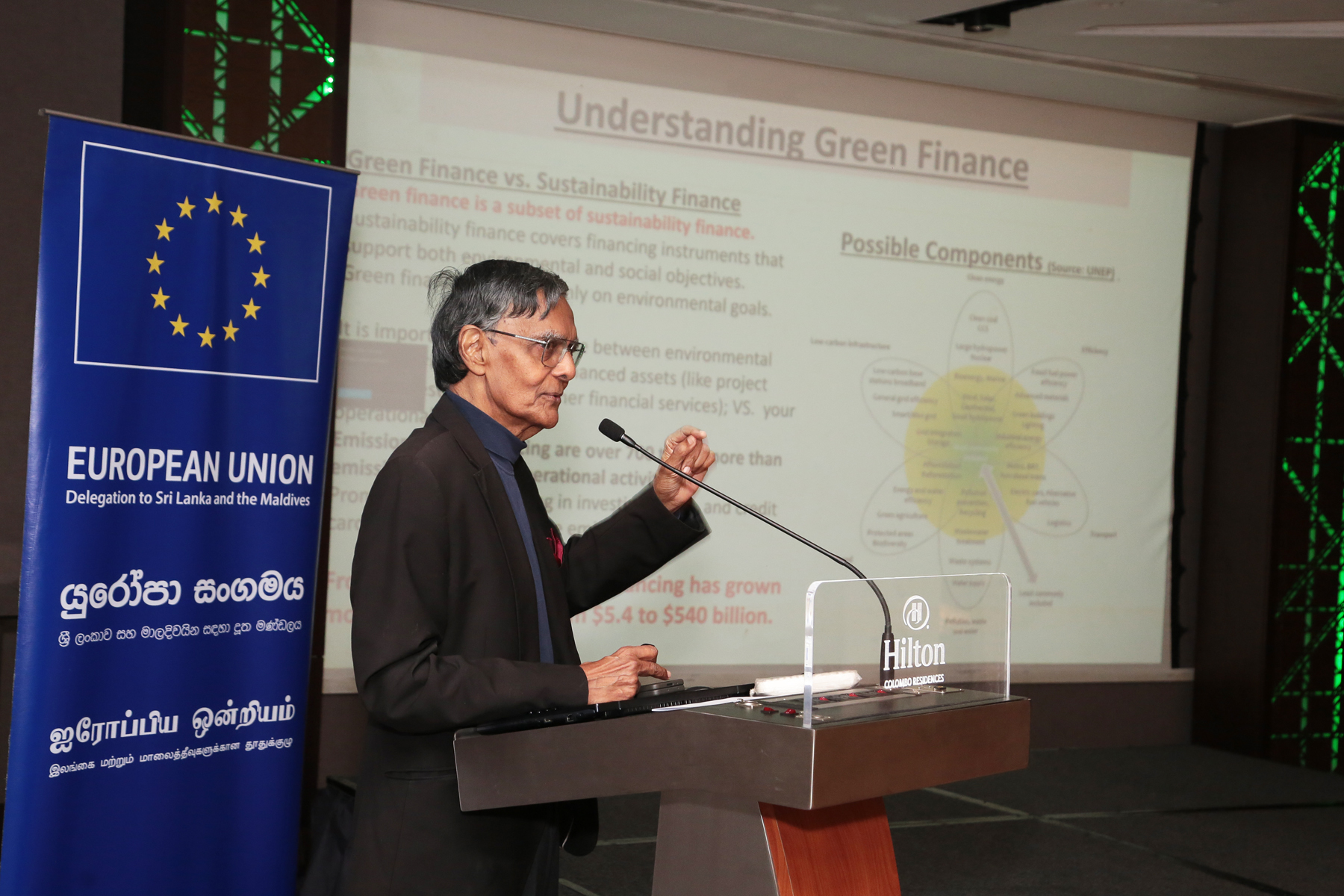
Sri Lanka’s Banking Sector: Embrace Green Finance or Fall Behind
Sri Lanka’s banking and financial sector is at a pivotal moment. With the global focus on sustainable investments, attracting green finance is now a necessity, not a choice. Professor Mohan Munasinghe, a renowned expert on sustainable development and climate finance, addressed Sri Lankan banking professionals at a seminar organised by Biodiversity Sri Lanka (BSL) under the Project PLASTICS initiative, funded by the European Union’s SWITCH-Asia programme. The event held on January 30 2025 at Jaic Hilton Colombo, aimed to help financial institutions promote a circular economy in Sri Lanka by providing them with necessary tools.
The seminar gathered 75 financial institution representatives to discuss the importance of green finance in promoting sustainable economic practices. The worldwide green finance market is growing quickly, with trillions of dollars going into projects focused on climate resilience, low-carbon, and biodiversity. For Sri Lanka’s banks to attract these funds, they must move beyond traditional lending models and embrace sustainability-aligned investment strategies.
Prof. Munasinghe’s Call to Action
Prof. Mohan Munasinghe, a Nobel Laureate and former Vice-Chair of the Intergovernmental Panel on Climate Change (IPCC), emphasised the golden opportunity for Sri Lanka’s financial institutions to adopt innovative sustainability-focused financial practices. He emphasised the need to follow global green finance standards and incorporate Environmental, Social and Governance (ESG) principles into policies to build investor confidence and stay competitive. Following frameworks such as the TCFD and TNFD can assist Sri Lankan banks in handling climate risks and appealing to global investors.
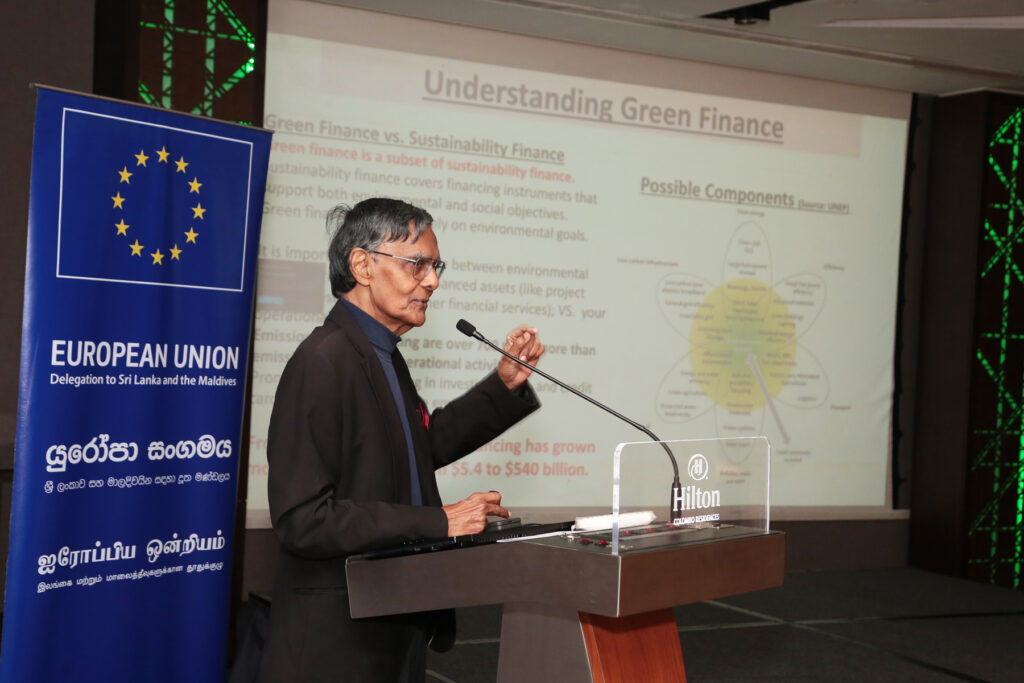
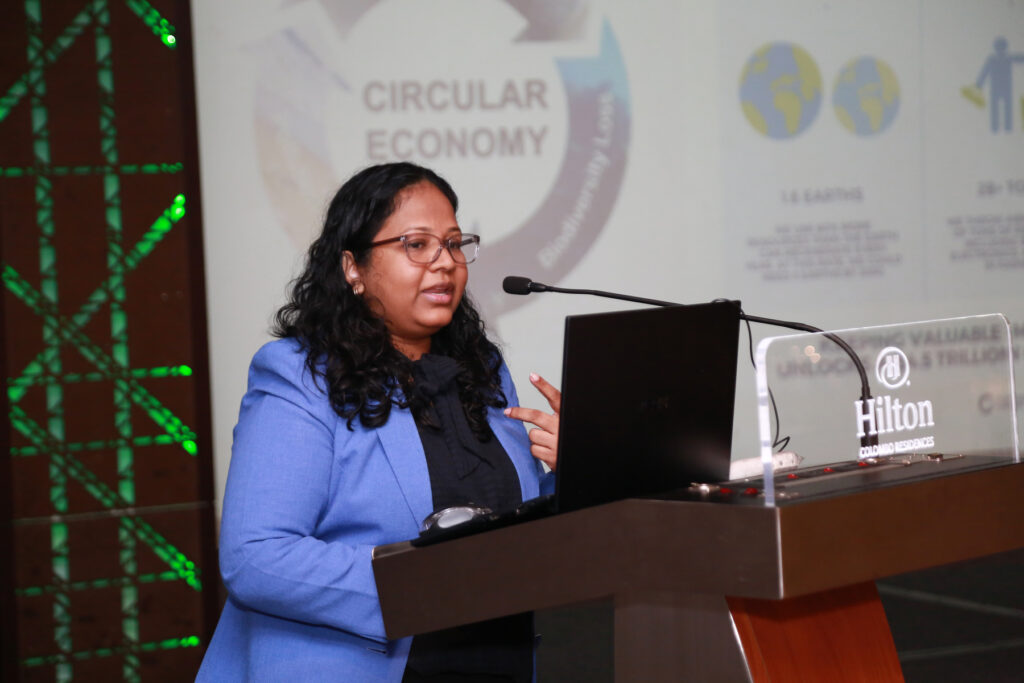
Driving Circular Innovation
Dr. Randika Jayasinghe emphasised the importance of banks in promoting the shift to a circular economy in Sri Lanka. She highlighted the need to shift from a linear to a circular economy to address climate change, biodiversity loss, and pollution. Banks can significantly influence the speed and scale of circular adoption through their investment decisions. Dr. Jayasinghe highlighted the importance of incorporating circular practices into financial strategies for sustainable financing and economic growth.
The Future of Business Sustainability
Sri Lanka is at a critical point in its economic and environmental path. As global industries adopt sustainability, the island nation needs to incorporate circular economy principles for long-term resilience. BSL’s Green Finance Specialist, Mr. Errol Abeyratne stressed the immediate importance of Sri Lanka shifting from a linear economic model to a circular one. He showed how industries can cut their carbon footprint and boost efficiency with circular business models that comply with global standards to stay competitive.
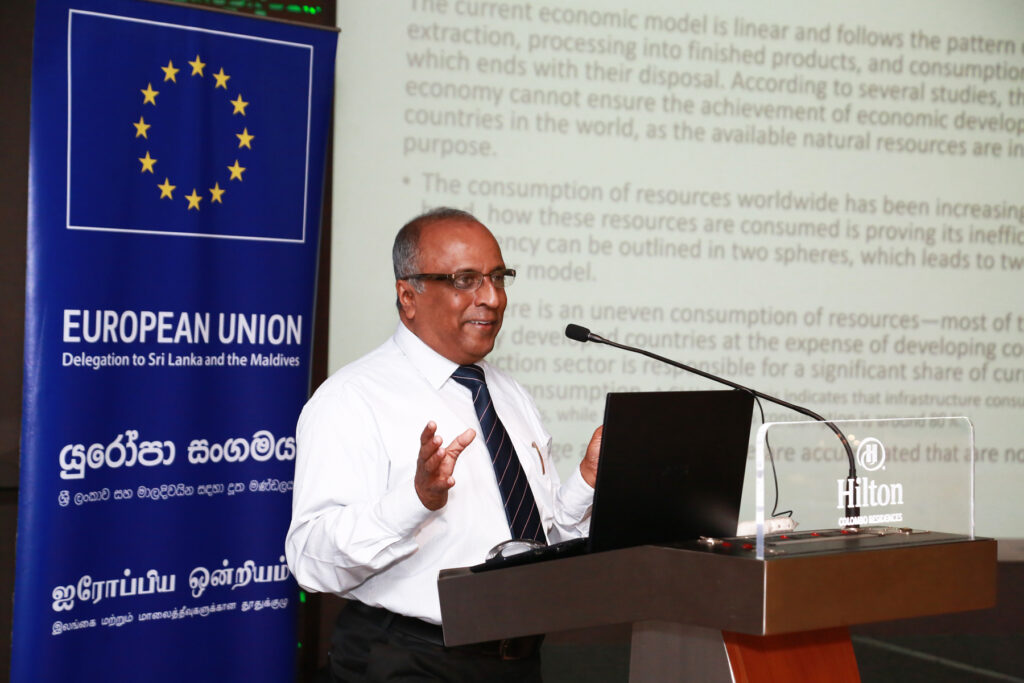
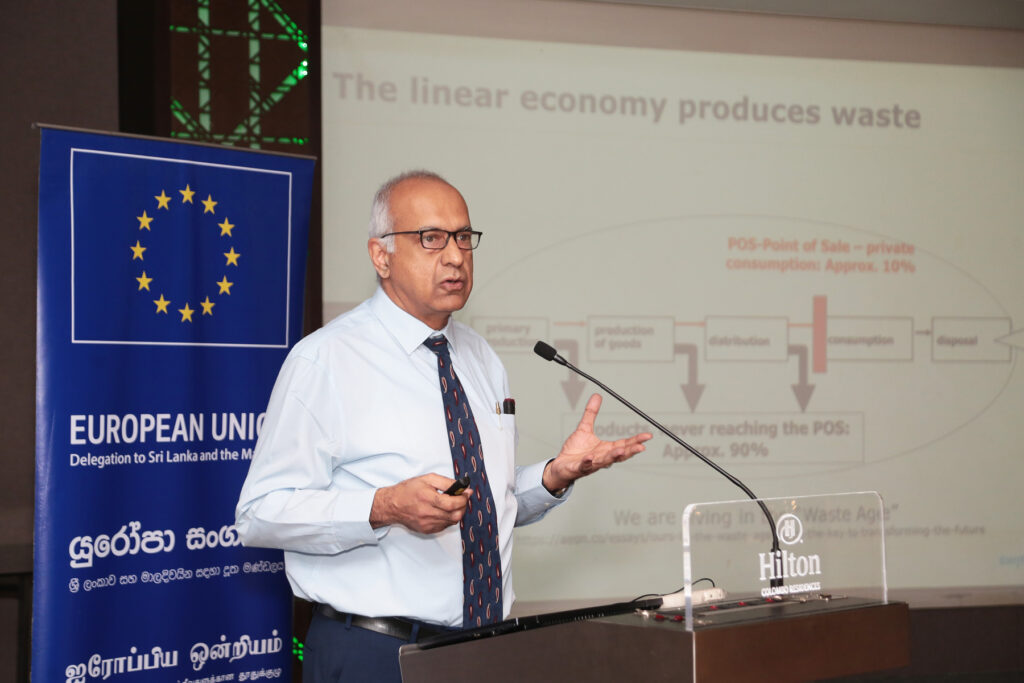
Resource Efficiency and Cleaner Production
Dr. Rajat Batra from STENUM Asia emphasised the negative effects of the linear economy on the environment and businesses, stressing the importance of transitioning to a Circular Economy and adopting Resource Efficient and Cleaner Production practices. He pointed out how wasteful resource flows in the linear economy led to environmental harm and increased business costs. Dr. Batra discussed effective methods from Europe and Asia, highlighting how industrial symbiosis and resource efficiency can lead to cost savings and environmental benefits.
The point of view of a business owner
Speaking on behalf of Small and Medium Enterprises (SMEs), Ample Clothing’s Co-Founder and Director Upekha Premathilaka highlighted the company’s commitment to sustainability and the circular economy, focusing on transforming plastic waste into biodegradable fabrics and promoting zero-waste fashion. She underscored the significant environmental impact of the fashion industry and the urgent need for sustainable practices. According to her, “Banks must evolve to support the circular economy, providing the necessary financial tools and investments to help businesses transition to sustainable models. Without this support, we risk being left behind in a rapidly changing economic landscape.”
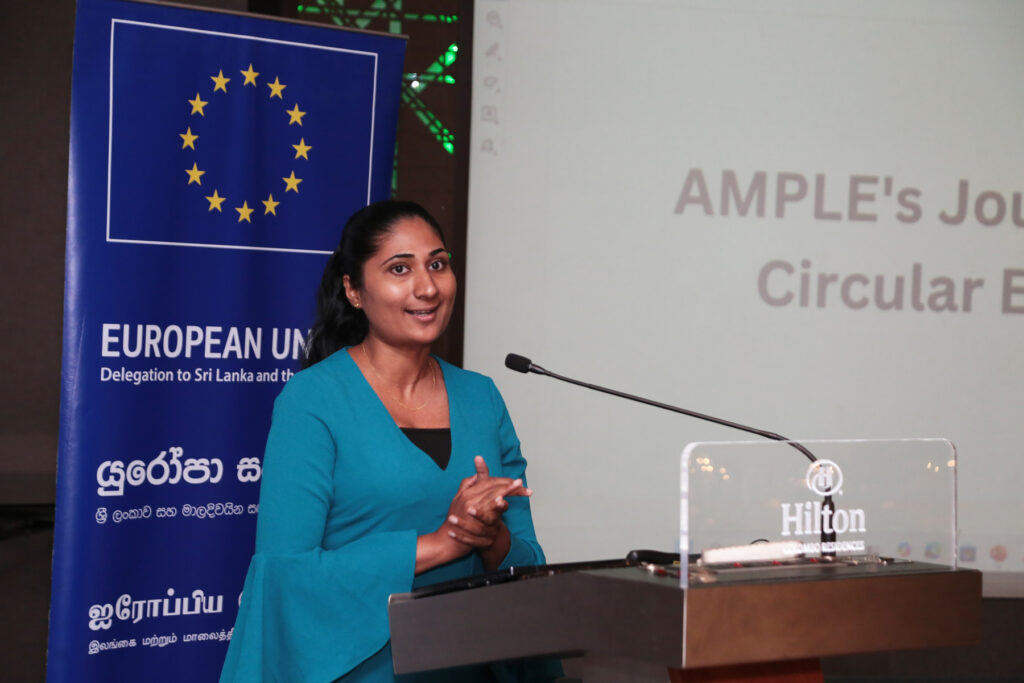
Panel calls for a Green Financial Revolution
In closing, a highly interactive panel discussion was held with the participation of: Chief Manager SME Banking of Commercial Bank Mr Mohan Fernando; Head of Sustainability Union Bank Mr Adheesha Perera; Managing Director of Alliance Finance Mr Romani de Silva; and Group Chief Financial Officer of Aberdeen Holding Group Mr Anushka de Silva. The panel emphasised the significance of creating environmentally friendly financial products like green bonds, sustainability-linked loans, and low-carbon investment funds. These financial instruments provide a competitive edge and unlock new funding opportunities for climate-friendly businesses and projects in Sri Lanka. Supporting nature-based solutions (NbS) such as mangrove restoration and regenerative agriculture is essential due to their financial and environmental benefits.
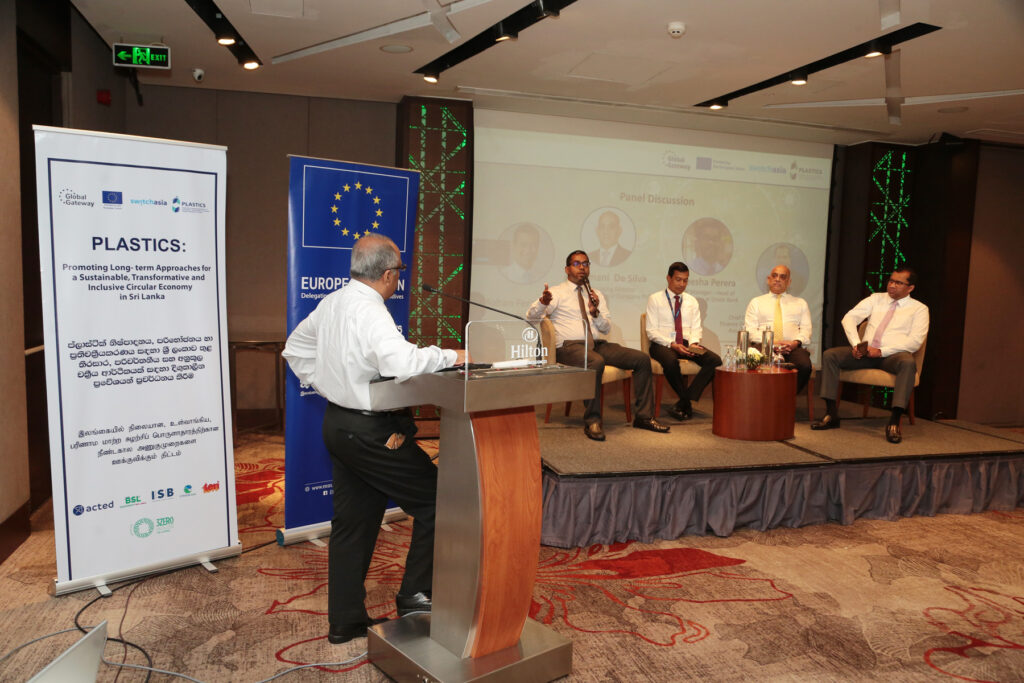

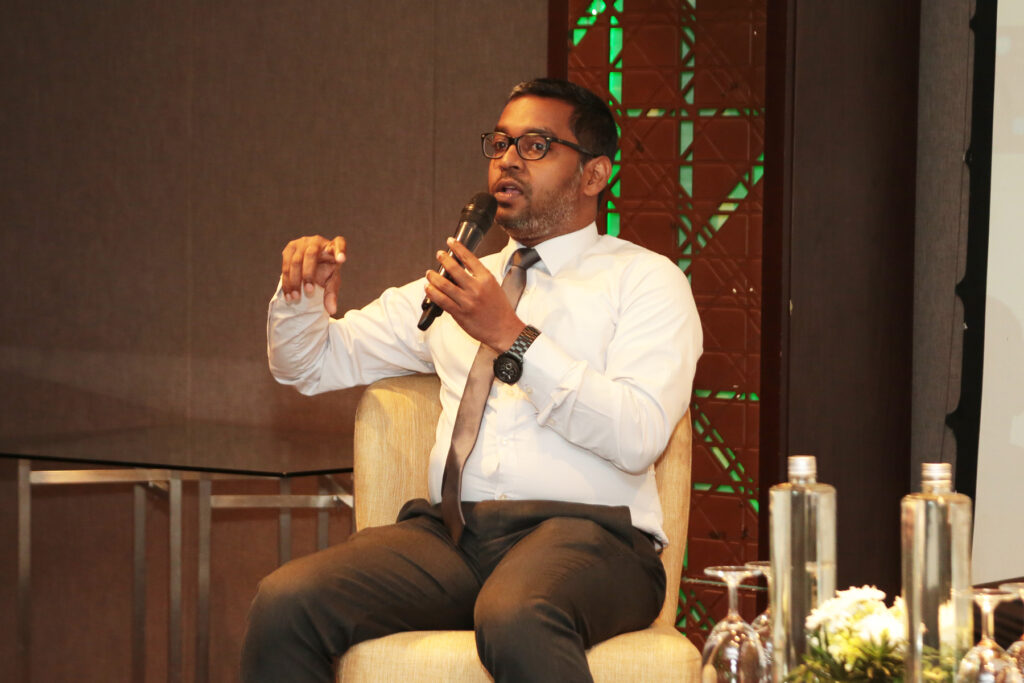
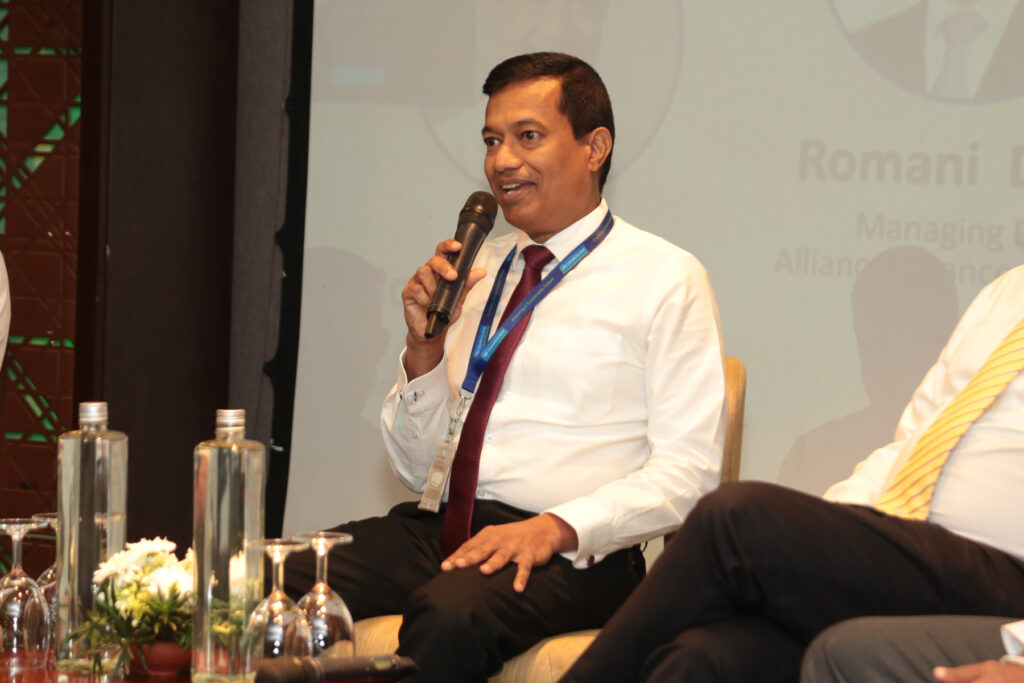
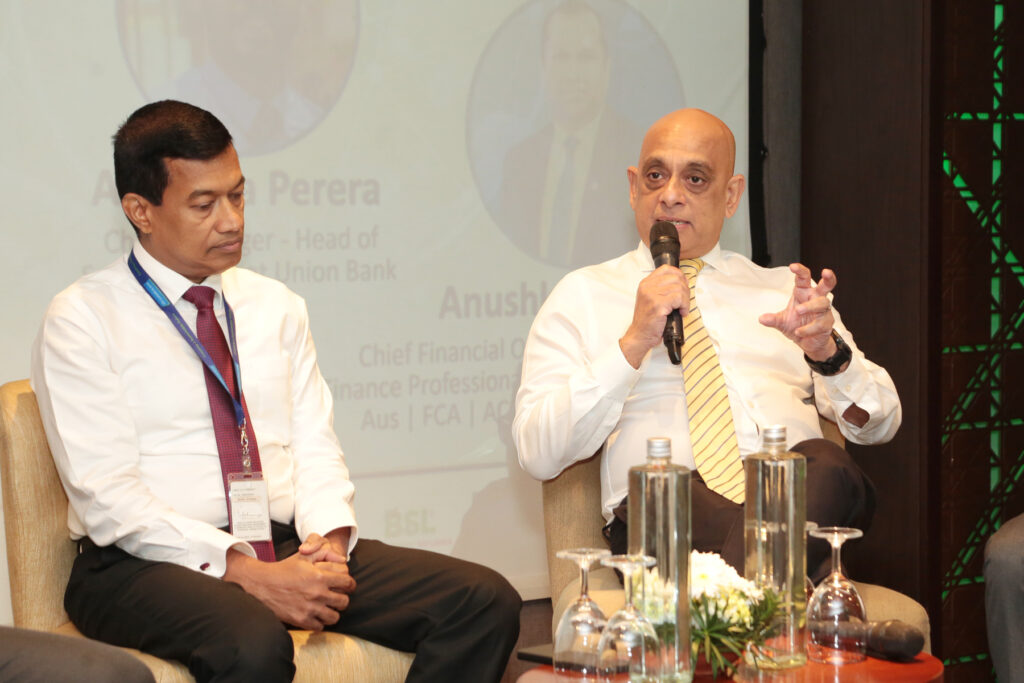
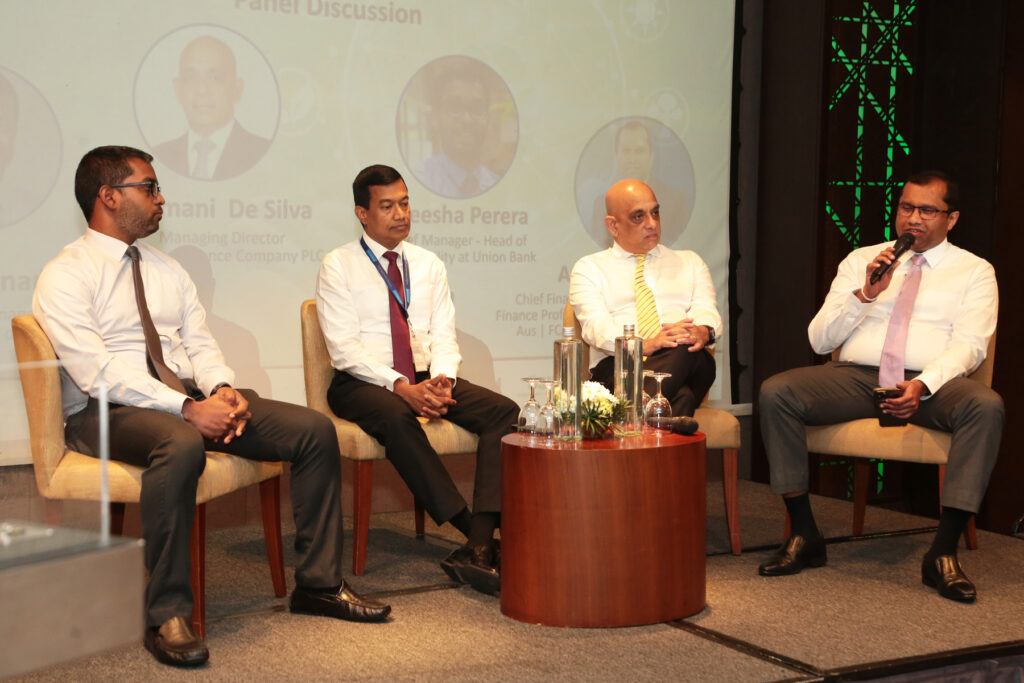
The panel also cautioned that delaying action may cause Sri Lanka to lose billions in global climate finance. As developed nations and financial institutions focus on green investments, countries with policy misalignment risk missing out on international funding. The need to take action is emphasised by changing global regulations, like the European Union’s Carbon Border Adjustment Mechanism (CBAM).
For Sri Lanka’s financial sector to fully benefit from green finance opportunities, it must adopt a systematic and integrated approach. Strengthening collaboration between banks, government agencies, and conservation organisations is key. Financial institutions need to collaborate with policymakers to create policies that promote sustainable investments and adhere to global environmental standards.
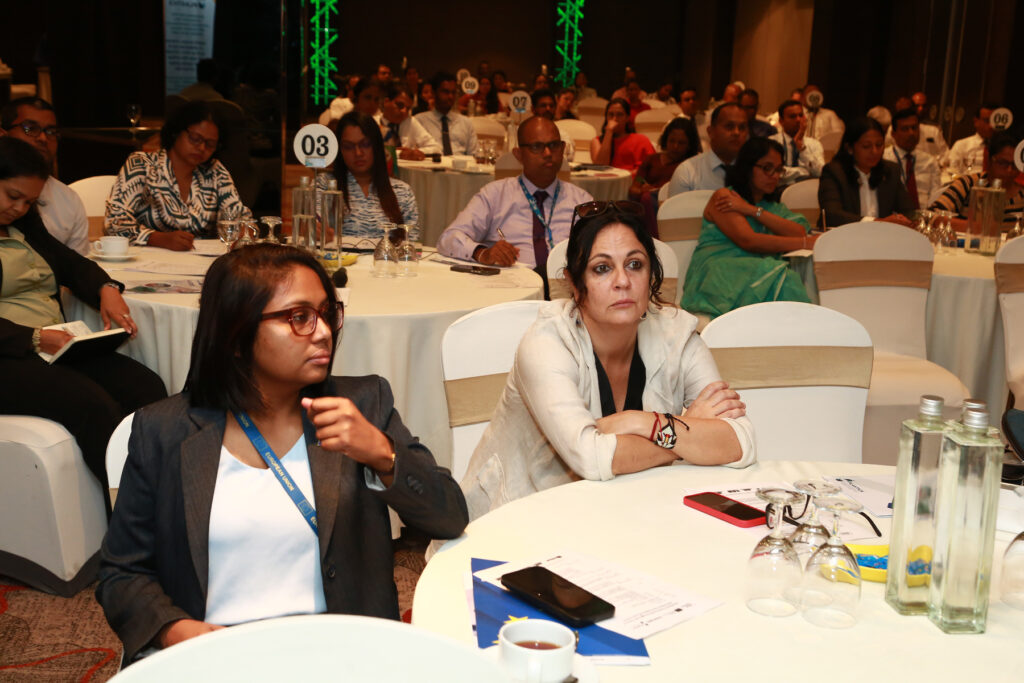
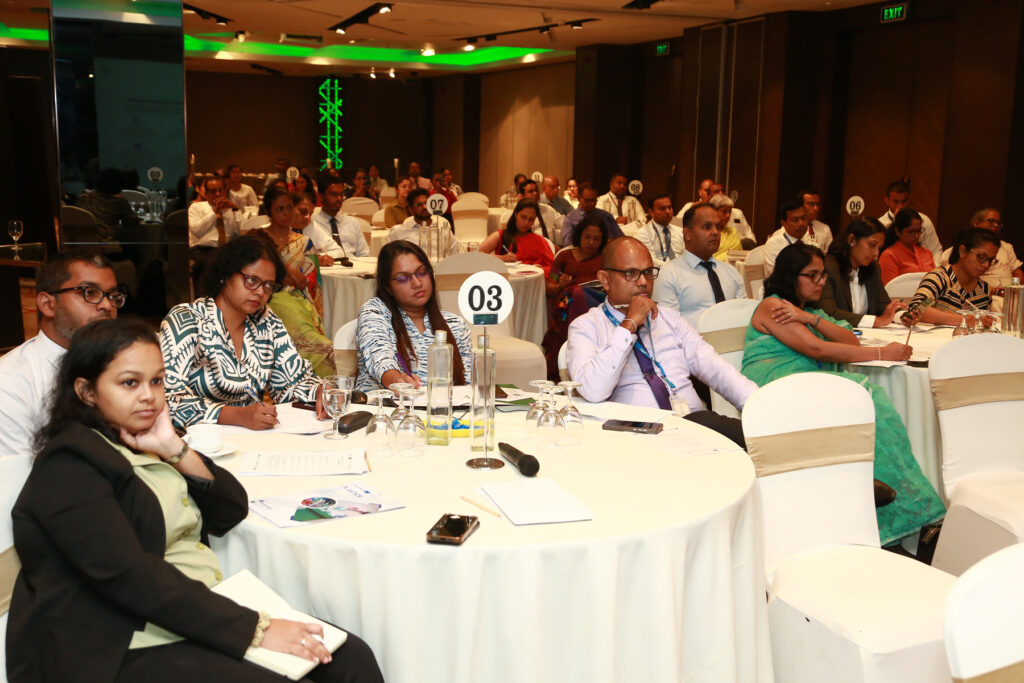
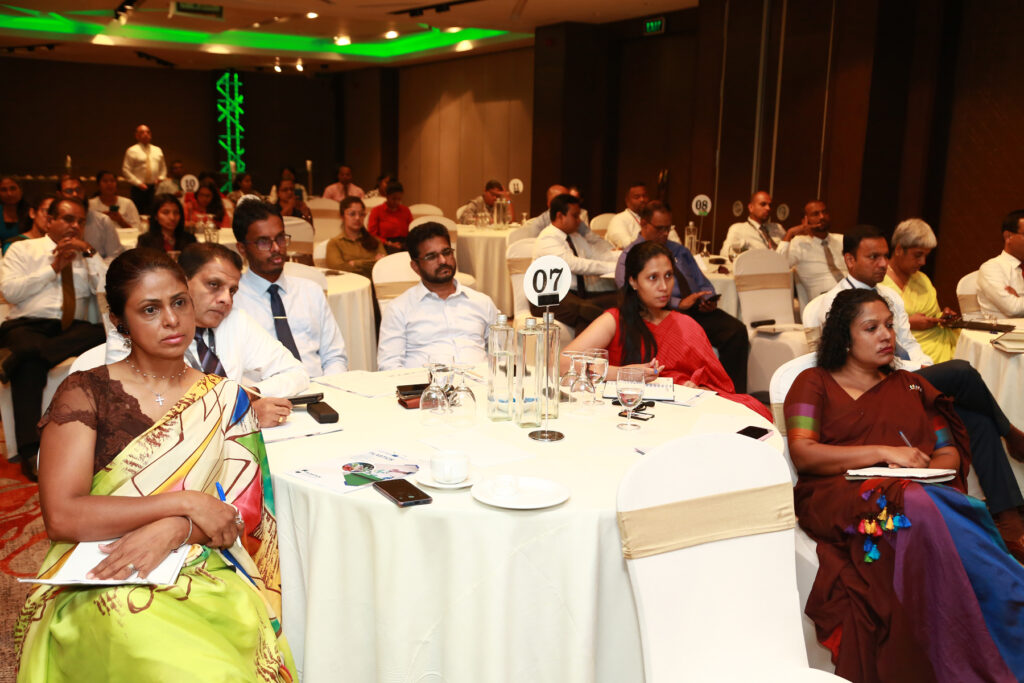
Building Partnerships and Expertise
Establishing partnerships with global financial institutions is crucial. Several global banks and development finance institutions are looking for sustainable investment opportunities in emerging markets. Sri Lankan banks can attract long-term partnerships for economic resilience and environmental sustainability by taking proactive steps in green finance.
Building internal capacity and expertise is also essential. Financial institutions must invest in training programmes and knowledge-sharing initiatives to equip their teams with the necessary skills to assess and manage climate-related financial risks. Developing in-house expertise on green finance will allow banks to effectively structure sustainability-linked products and services while advising clients on transitioning to greener business models.
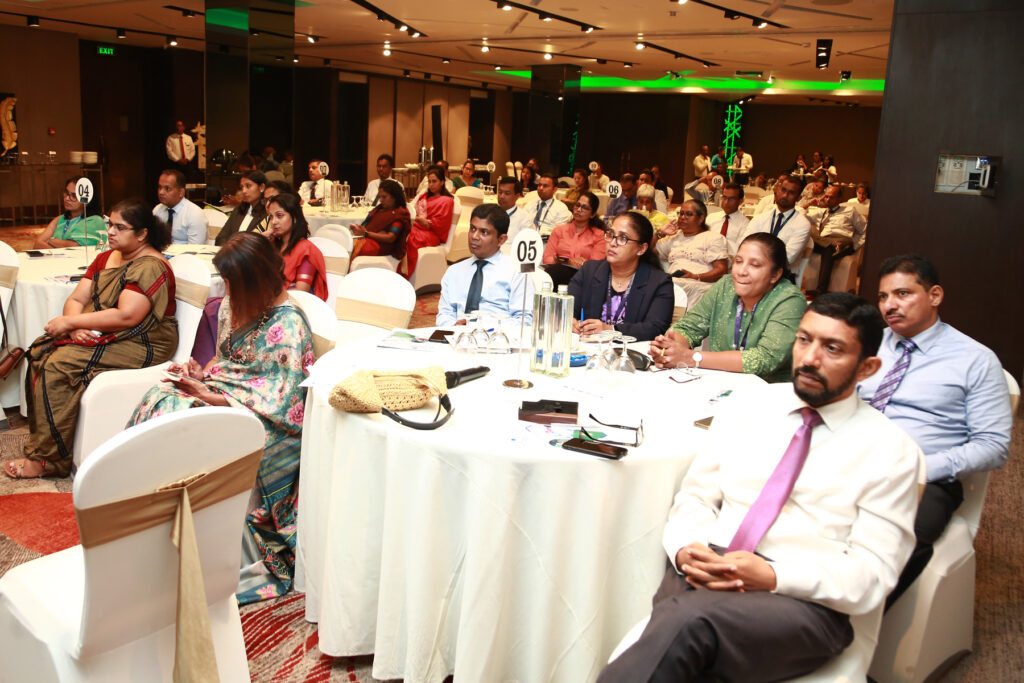
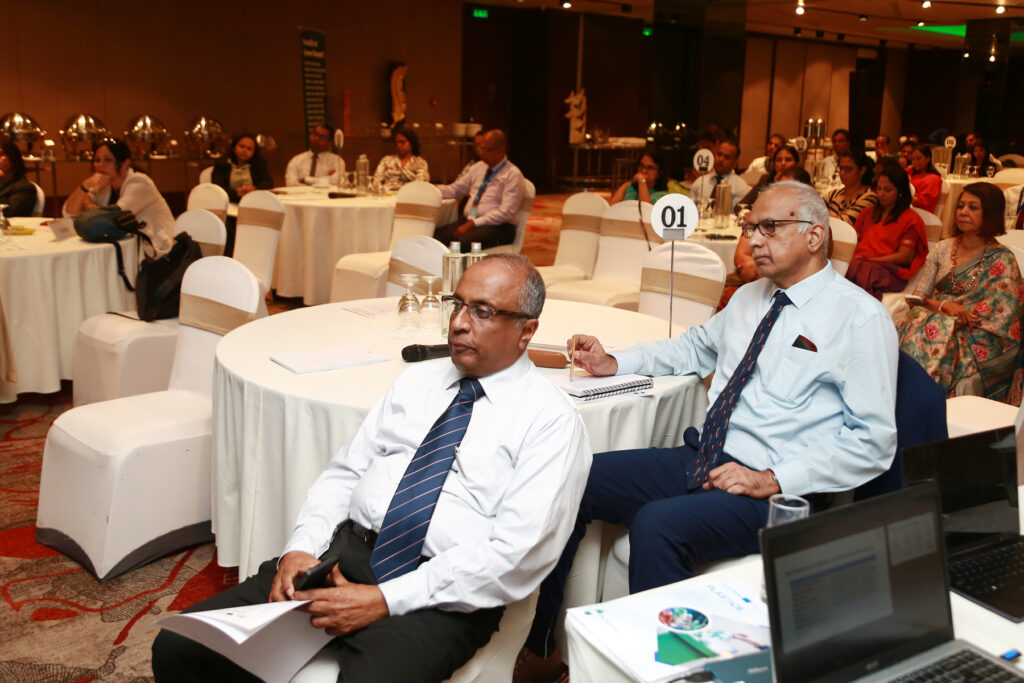
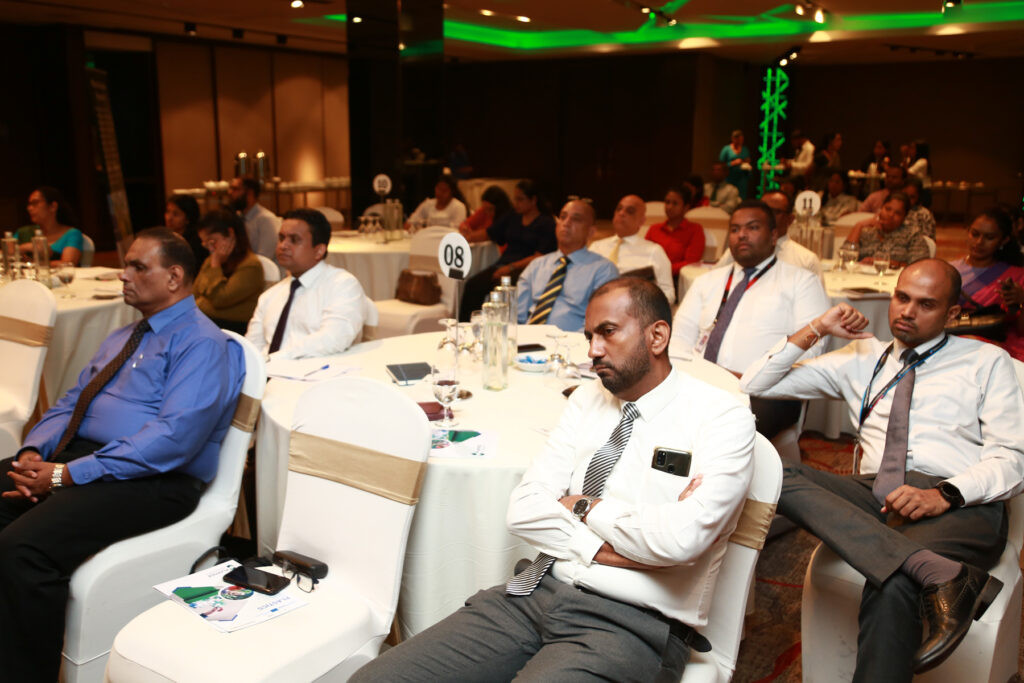
The Future of Banking
The global green finance movement is not a passing trend—it is the future of banking. Prof. Munasinghe’s insights provide a clear roadmap for Sri Lanka’s financial institutions to secure their place in this evolving landscape. With bold leadership, strategic action, and a commitment to sustainability, Sri Lanka’s banking sector can attract global green finance and position itself as a leader in Asia’s sustainable finance ecosystem. The time to act is now.
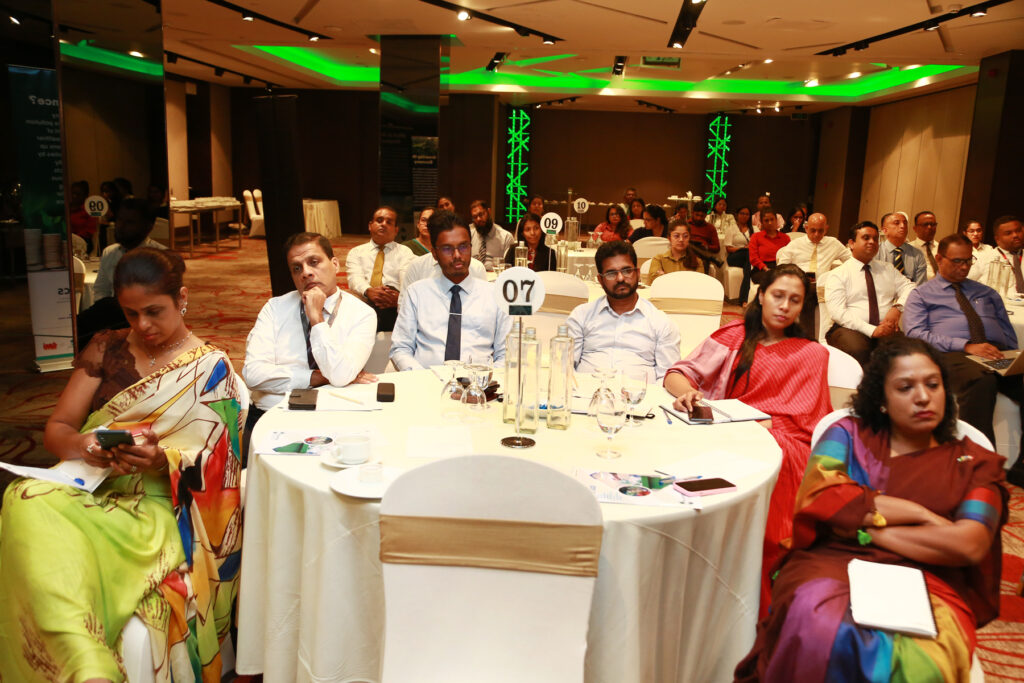
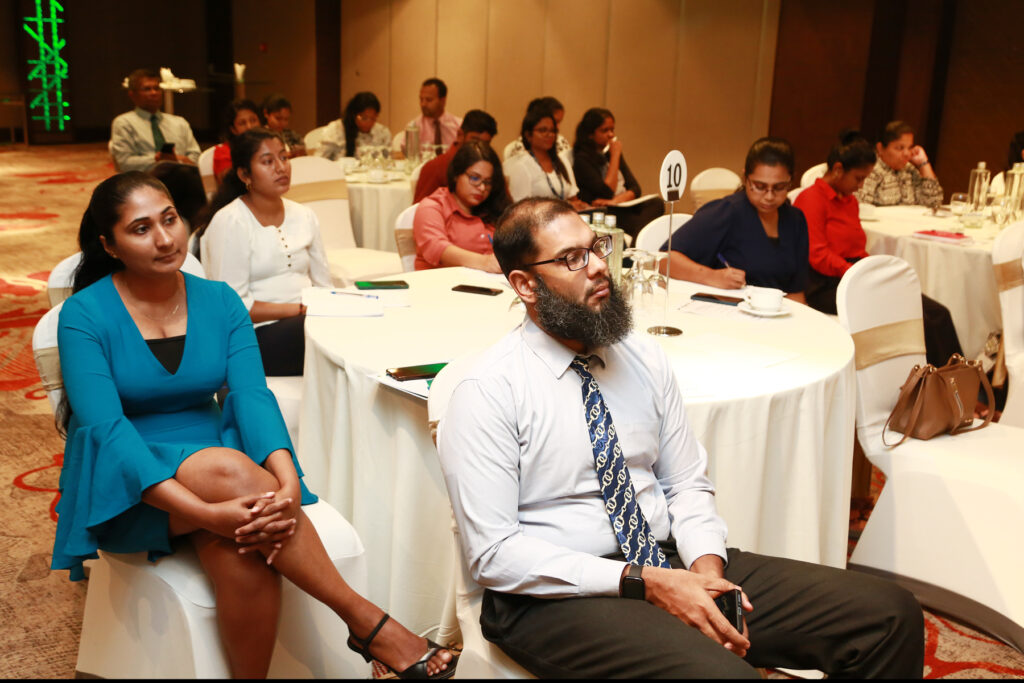
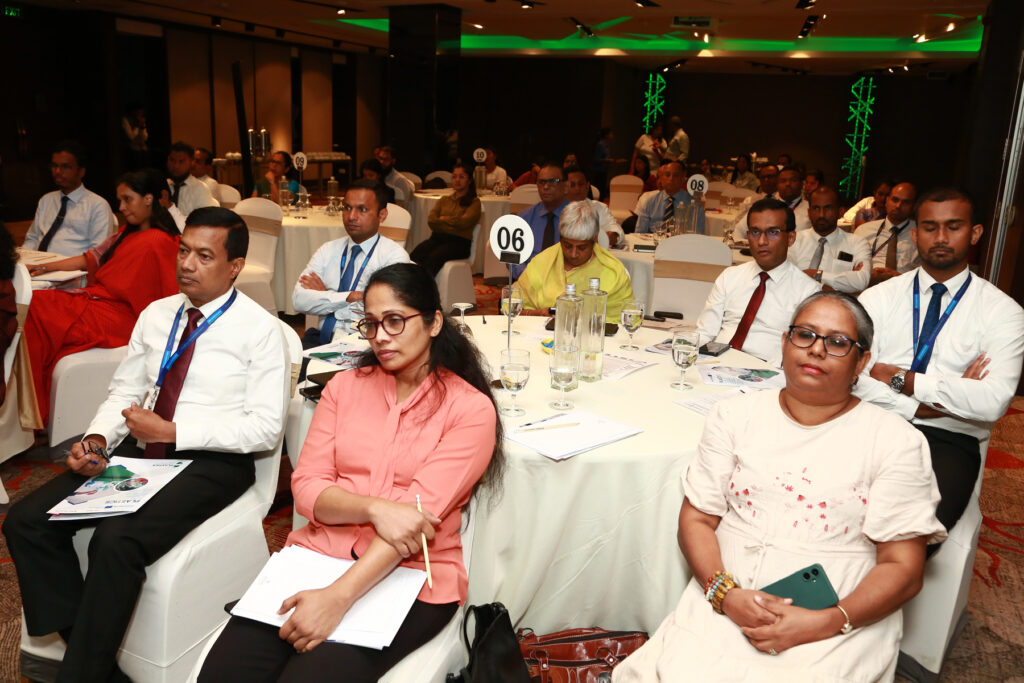
Sri Lanka can leverage frameworks like the European Union’s Circular Economy Action Plan (CEAP) and the UN’s Sustainable Development Goals (SDGs) to attract green investments and enhance global trade partnerships. However, challenges such as the lack of awareness and infrastructure to support circular economy initiatives must be addressed. Government-backed incentives and a clear regulatory framework are essential for a successful transition. To make Sri Lanka a regional sustainability leader, businesses need to use green finance, focus on sustainable sourcing, and build partnerships for circular economy principles. Policymakers should back these initiatives by enforcing sustainability regulations, providing incentives for green innovation, and promoting partnerships with international organisations.
By adopting these strategies, Sri Lanka’s banking sector can ensure its future in the global green finance landscape and support a sustainable and resilient economy.
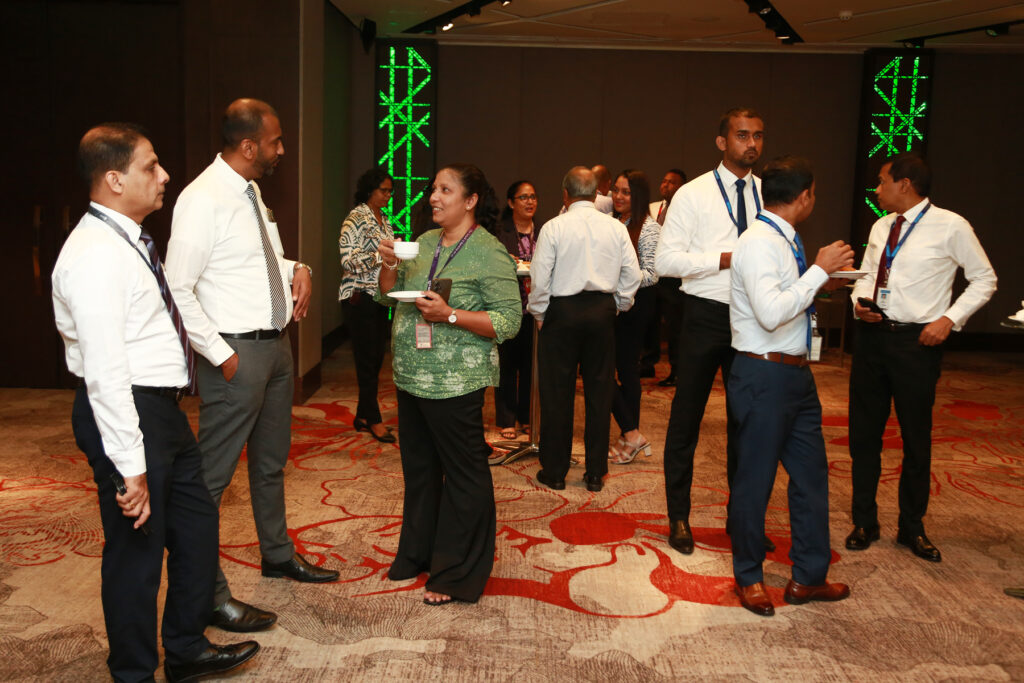
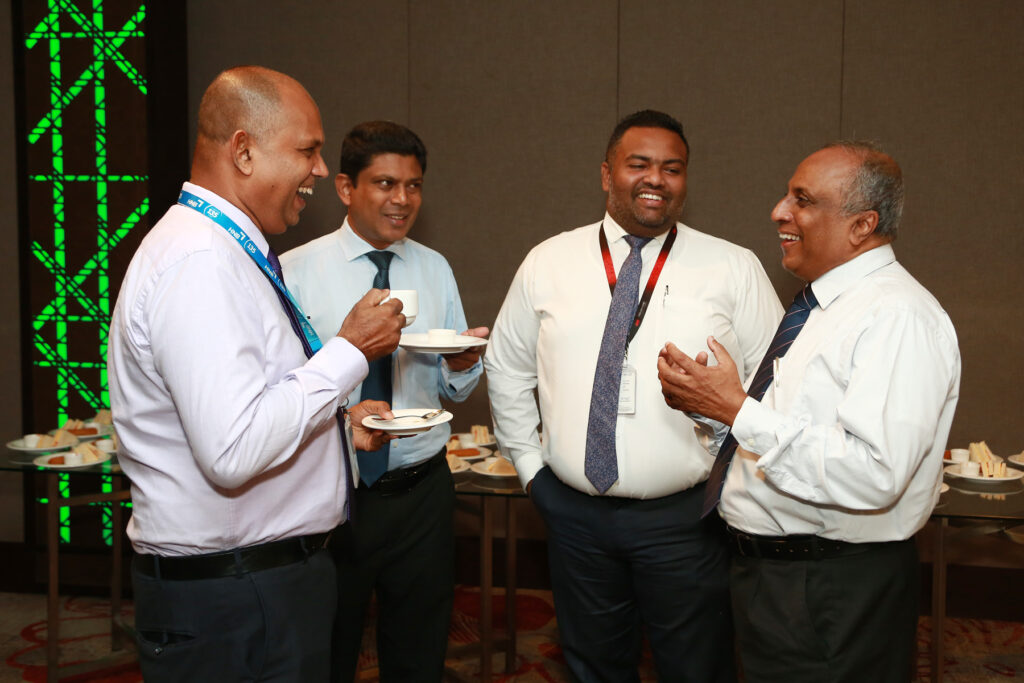
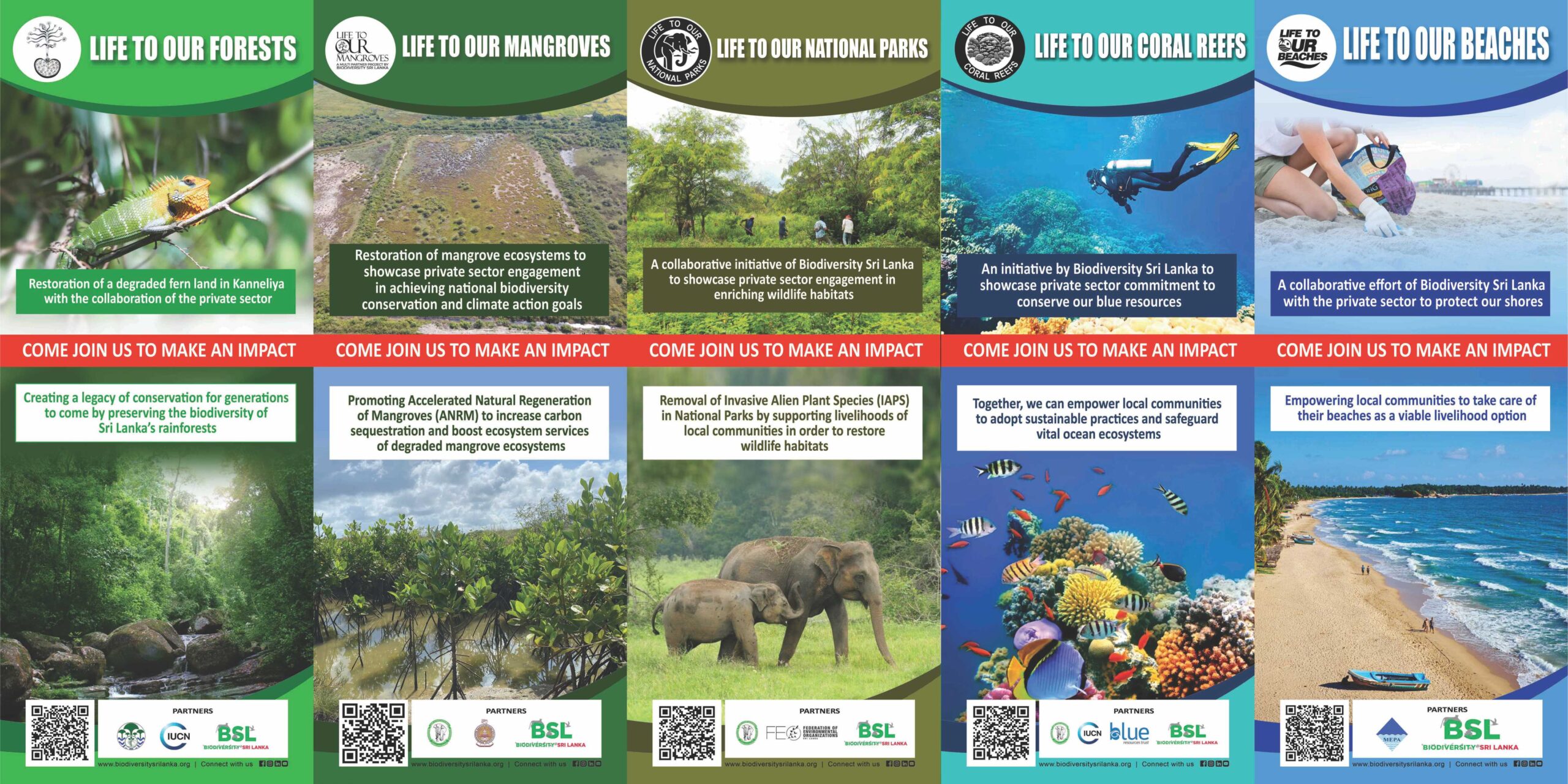
Introducing the BSL LIFE Series: Leading Initiatives for Environment and Sustainability
In today’s world, where environmental sustainability is both a global priority and a pressing need, businesses are expected to lead by example. Biodiversity Sri Lanka (BSL) recognizes this urgency and provides its members with a powerful platform to address environmental challenges in a meaningful way. Through our LIFE Series (Leading Initiatives for Environment), BSL connects, empowers, and inspires member companies to adopt sustainable practices that support biodiversity and make a tangible impact on the ground.
What is the LIFE Series?
The LIFE Series is a suite of carefully designed initiatives that provide BSL members with resources, opportunities, and guidance to advance their sustainability efforts. It’s more than a program – it’s a journey where businesses from various sectors can learn, innovate, and act collectively. The LIFE Series emphasizes collaborative action, knowledge sharing, and hands-on engagement with pressing environmental issues in Sri Lanka.
While understanding the broad benefits of reversing the trend in environmental degradation, most companies are reluctant to begin intervening in natural ecosystem restoration as this requires specialised knowledge and long-term involvement. BSL has recognised the fact that such businesses need technical support as well as assistance in liasing with government stakeholders. Using many years of experience in facilitating field-based interventions and leveraging on the strong relationship built with the public sector in Sri Lanka, BSL has now packaged its field activities to offer the LIFE Series of projects to the private sector.
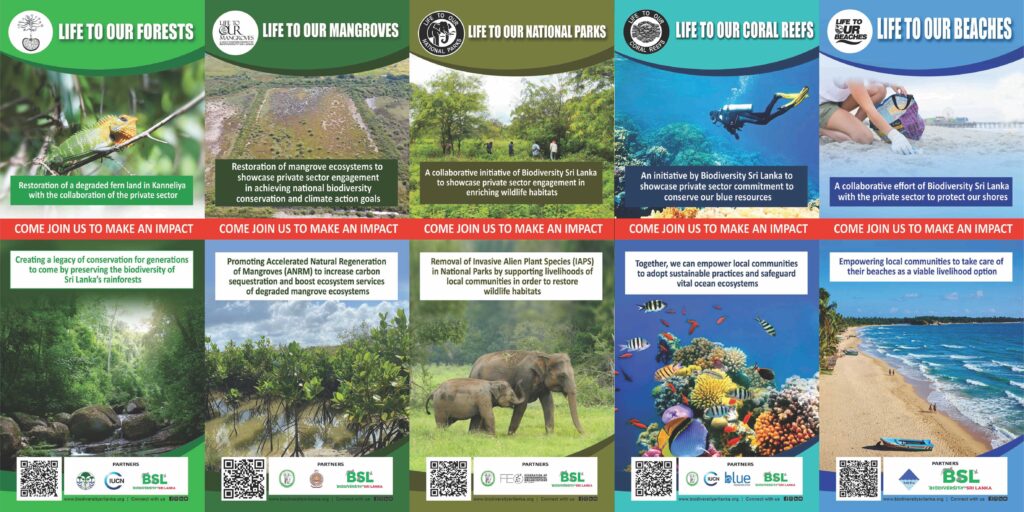
The LIFE Series currently comprises of five pathways for corporate involvement in nature-positive environmental interventions at a national level:
- Life to Our Forests (LOF) – Restoration of a degraded fern land in the Kanneliya Forest Reserve in collaboration with the Forest Department and IUCN with the objective of creating a legacy of conservation for generations to come by preserving the biodiversity of Sri Lanka’s rainforests.
- Life to Our Mangroves (LOM) – Restoration of mangrove ecosystems to showcase private sector engagement in achieving national biodiversity conservation and climate action goals. This project promotes Accelerated Natural Regeneration of Mangroves (ANRM) to increase carbon sequestration and boost ecosystem services of degraded mangrove ecosystems in collaboration with Wayamba University and the Department of Wildlife Conservation.
- Life to Our Coral Reefs (LOCR) – This is an initiative of Biodiversity Sri Lanka to showcase private sector commitment to conserve Sri Lanka’s blue resources. In collaboration with the Department of Wildlife Conservation, IUCN and the Blue Resources Trust, the project empowers local communities to adopt sustainable practices that safeguard vital ocean resources.
- Life to Our Beaches (LOB) – By empowering local communities – particularly women – to take care of their beaches as a viable livelihood option, this project provides a pathway for the private sector to protect Sri Lanka’s shores with the support of the Marine Environment Protection Authority (MEPA).
- Life to Our National Parks (LONP) – This is a collaborative initiative of Biodiversity Sri Lanka to showcase private sector engagement in enriching wildlife habitats. The project engages surrounding communities in the removal of Invasive Alien Plant Species (IAPS) in national parks by supporting livelihoods that restore wildlife habitats. This is a collective effort of BSL and the Federation of Environmental Organisations (FEO) together with the Department of Wildlife Conservation.
Biodiversity Sri Lanka encourages businesses to work closely with government agencies and NGOs through the LIFE Series of projects that focus on providing economic benefits to local communities while safeguarding natural ecosystems. This could include supporting rural livelihoods through sustainable farming initiatives, promoting eco-tourism, or funding biodiversity research.
Each initiative within the LIFE Series addresses specific aspects of biodiversity conservation and sustainable practices, making it possible for companies to choose pathways that align with their unique environmental commitments. The program offers diverse activities, from technical workshops and field training to collaborative projects that bring businesses and conservation experts together.
Why LIFE Series Matters to Businesses
Environmental leadership is now a key component of a company’s reputation and success. In Sri Lanka, consumers, investors, and communities alike are increasingly interested in businesses that demonstrate real commitment to sustainability. The LIFE Series helps member companies integrate sustainable practices into their business models while showcasing these efforts to stakeholders who value responsible business conduct.
By participating in the LIFE Series, companies can:
- Gain Practical Knowledge: The LIFE Series offers workshops, seminars, and resources that equip businesses with practical tools for tackling environmental challenges. From eco-friendly supply chain management to biodiversity conservation strategies, the LIFE Series covers essential skills that help businesses thrive sustainably.
- Build Partnerships: At BSL, we believe in the power of partnerships. LIFE Series initiatives create a space for companies to connect with like-minded businesses, conservationists, and experts. Together, our members share ideas, build solutions, and drive initiatives that extend beyond individual actions to collective impact.
- Demonstrate Accountability: Through regular reporting, impact assessments, and project visibility, BSL members who engage in the LIFE Series can demonstrate their commitment to sustainability. This accountability is critical in building trust with customers, investors, and communities.
- Make Ground-level Impact: The LIFE Series is designed to generate measurable environmental benefits. Whether through habitat restoration, pollution reduction, or awareness campaigns, each initiative within the series is crafted to make a lasting, positive impact on Sri Lanka’s natural environment.
Key Components of the LIFE Series
The LIFE Series is divided into several key components, each designed to address a different facet of sustainability. Some highlights include:
- LIFE Talks and Technical Sessions: These sessions bring together industry experts, scientists, and policymakers to discuss the latest developments in biodiversity conservation and sustainable practices. LIFE Talks provide an invaluable learning opportunity for members, helping them stay informed and engaged with global and local environmental trends.
- Field Projects and Conservation Activities: From coastal clean-ups to forest restoration projects, the LIFE Series organizes hands-on activities where members can contribute directly to the environment. These projects not only offer employees a chance to get involved but also give businesses the opportunity to show their commitment to real, on-the-ground change.
- Capacity-Building Workshops: BSL offers tailored training sessions for companies that want to strengthen their sustainability initiatives. Topics range from carbon footprint reduction to water conservation, giving businesses the tools they need to enhance their own environmental practices and inspire others in their industry.
- The LIFE Recognition Program: This program celebrates outstanding contributions to sustainability by recognizing member companies that go above and beyond. The LIFE Recognition Program awards businesses that have shown exceptional dedication to environmental stewardship, highlighting their achievements and motivating others to follow suit.
Success Stories: The LIFE Series in Action
The LIFE Series has already achieved significant results, thanks to the commitment and passion of BSL’s members. For example, our recent reforestation project in Kanneliya has brought together businesses, local communities, and environmental experts to restore degraded forest areas and improve biodiversity. Members who participated in this initiative have seen firsthand the power of collective action and the benefits it brings to both nature and business.
Another success story is the BSL Plastic Waste Reduction Initiative, where companies from various sectors collaborated to reduce single-use plastics in their operations. By sharing best practices and implementing waste reduction measures, these businesses have successfully minimized their environmental impact while demonstrating the benefits of sustainable practices to their employees and clients.
Why Join the LIFE Series?
The LIFE Series is designed for companies that are ready to make a meaningful impact on Sri Lanka’s environment. By joining, you not only gain access to a supportive network of like-minded businesses but also position yourself as a leader in sustainability. Whether you’re looking to improve internal practices, strengthen community relations, or boost your environmental credibility, the LIFE Series offers a pathway to achieving your goals.
At BSL, we understand that sustainability is a journey, and we’re here to support our members every step of the way. By joining the LIFE Series, your company becomes part of a movement that’s reshaping Sri Lanka’s environmental future. Together, we can make a difference that lasts.
Get Involved
If you’re ready to take your sustainability journey to the next level, we invite you to explore the LIFE Series and see how your business can benefit. For more information or to discuss how your company can join, please reach out to us at BSL. Together, let’s lead the way toward a sustainable, biodiverse Sri Lanka.
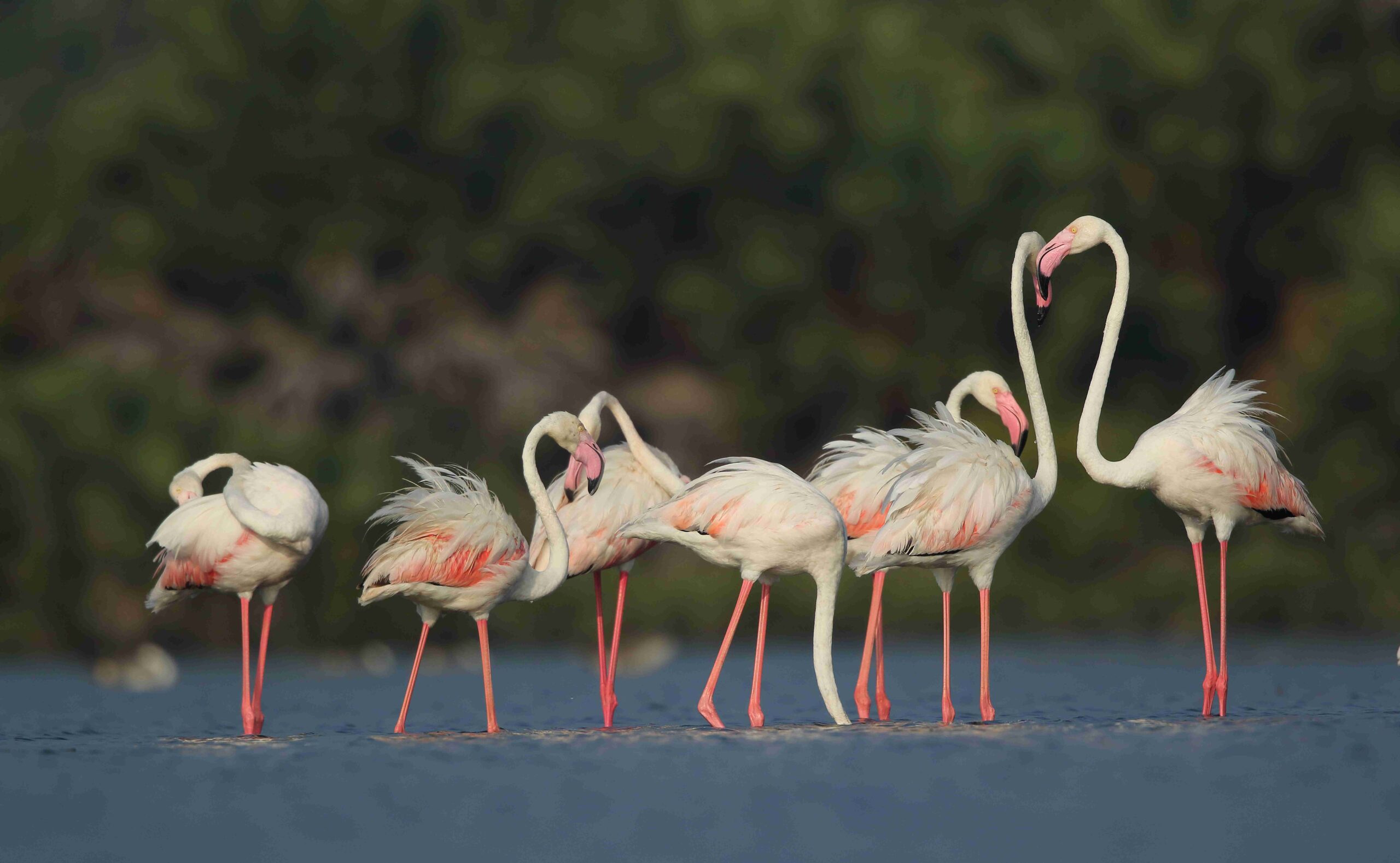
The Vital Connection Between Biodiversity and Sustainability
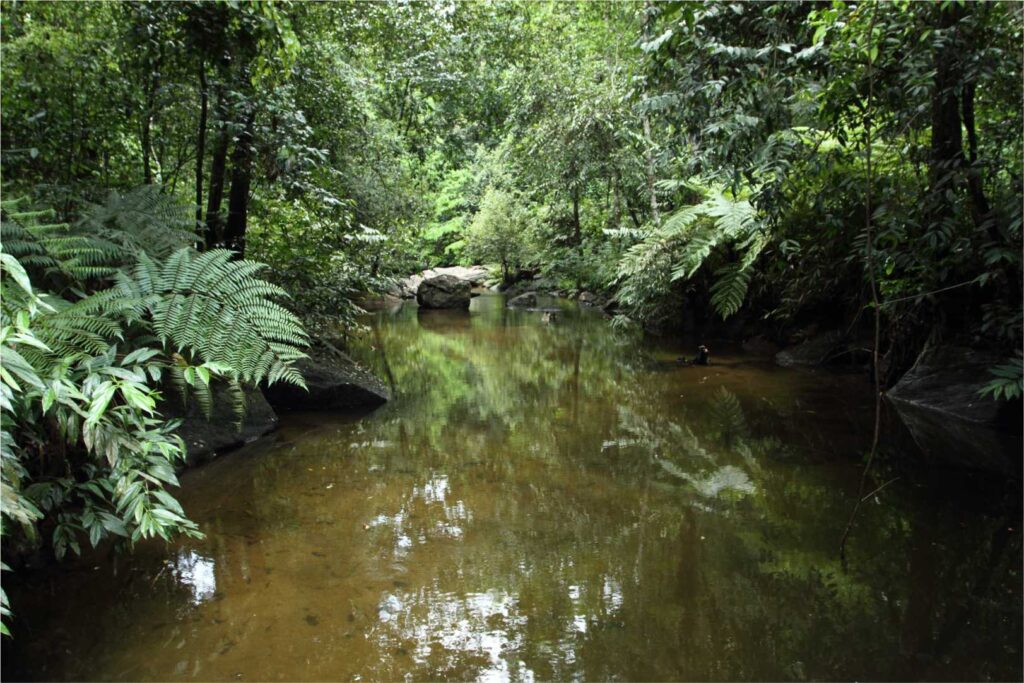
In today’s rapidly changing world, the concepts of biodiversity and sustainability are more interconnected than ever before. As leaders in the business community, it’s crucial to understand this nexus and take proactive steps to ensure that our economic activities support, rather than harm, the natural world that sustains us.
Why Biodiversity Matters
Biodiversity refers to the variety of life on Earth, encompassing different species, ecosystems, and genetic variations. This diversity is not just about preserving the beauty of nature; it’s about maintaining the essential services that ecosystems provide. These services include clean air and water, fertile soil for agriculture, pollination of crops, and climate regulation. In essence, biodiversity is the foundation of our well-being and economic prosperity.

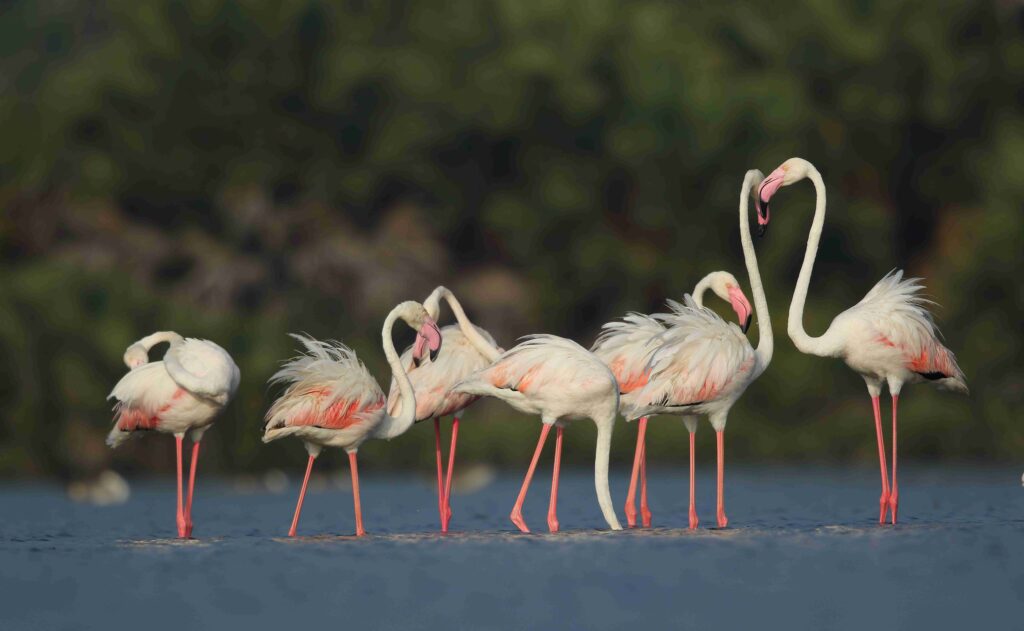
The Role of Sustainability
Sustainability is about meeting our current needs without compromising the ability of future generations to meet theirs. It involves balancing economic growth, social inclusion, and environmental protection. When we integrate biodiversity into our sustainability efforts, we ensure that our natural resources are used wisely and conserved for the future.
The Business Case for Biodiversity
For businesses, embracing biodiversity and sustainability is not just a moral obligation; it’s a smart strategy. Companies that prioritize these values often see numerous benefits, including:
- Enhanced Reputation: Consumers and investors are increasingly favoring companies that demonstrate environmental responsibility. By showing a commitment to biodiversity, your business can build a positive image and attract a loyal customer base that values sustainability.
- Risk Management: Healthy ecosystems can mitigate risks related to climate change, such as extreme weather events. For instance, forests and wetlands can act as natural buffers against floods and storms, reducing potential damage to infrastructure and operations.
- Innovation and Efficiency: Sustainable practices often lead to innovative solutions and more efficient use of resources, reducing costs in the long run. For example, adopting biodiverse agricultural practices can improve soil health and crop yields, leading to more resilient and productive farming systems.
- Market Opportunities: There is a growing market for eco-friendly products and services, providing new business opportunities. Consumers are willing to pay a premium for products that are sustainably sourced and produced, opening up new revenue streams for businesses that prioritize biodiversity.
Biodiversity Sri Lanka (BSL)
To make a meaningful impact, we invite you to join Biodiversity Sri Lanka (BSL). BSL is a platform that brings together businesses committed to biodiversity conservation and sustainable practices. By becoming a member, you can:
- Collaborate: Work with other like-minded businesses to share knowledge and best practices. BSL provides a network where you can learn from the experiences of others and develop joint initiatives that amplify your impact.
- Report: Engage in biodiversity reporting to track and communicate your conservation efforts. Transparent reporting helps build trust with stakeholders and demonstrates your commitment to sustainability.
- Support: Contribute to projects that protect and restore Sri Lanka’s unique ecosystems. BSL facilitates various conservation projects that you can support, ensuring that your efforts are directed towards impactful and scientifically-backed initiatives.
Take Action Today
Your involvement through BSL can make a significant difference. Together, we can create a sustainable future where businesses thrive in harmony with nature. Let’s lead by example and show that economic success and environmental stewardship go hand in hand.

Boosting Sri Lanka’s Circular Conversion: The PLASTICS Project
Biodiversity Sri Lanka (BSL) is playing a pivotal role through the PLASTICS project, an ambitious, multi-partner initiative aimed at promoting a sustainable and circular economy for plastics in Sri Lanka. Funded by the EU’s SWITCH-Asia program, this 48-month project is designed to boost economic development in the plastics value and supply chains (V/SC) by supporting Small and Medium Enterprises (SMEs) through innovative approaches to resource efficiency, green finance, and sustainable waste management.
The overall objective of the project is to facilitate sustainable and innovative plastic minimisation and management in Sri Lanka by integrating SMEs in greener value and supply chains, thereby contributing to economic prosperity and environmental sustainability.
The four main outputs of the PLASTICS project are:

BSL’s Key Goals are Activity 3 and Activity 4.
Activity 3: Access to green finance and Investment’s dimension are increased to scale up green economic initiatives, especially among Businesses
Activity 4: The traceability, transparency, and compliance in plastic SWM are strengthened through public-private dialogue, collaboration and monitoring
A Focus on SMEs and Green Finance
The project aims to engage 150 SMEs, 10 entrepreneurs, and 50 Business Development Service providers to foster a collaborative environment for green business development. BSL’s work under Activity 3 involves engaging the SMEs in the circular economy, and creating awareness of green financing options. These awareness sessions, held in Colombo, Gampaha, and Kalutara in August and September 2024, encouraged SMEs to rethink their business models, adopting more sustainable and resilient approaches that align with circular economy principles.
Event held for SMEs in Colombo at the BMICH on 15 August 2024
Event held for SMEs in Kaluthara at the Royal Oshin hotel on 12 September 2024
Event held for SMEs in Gampaha at the KayJay hotel on 13 September 2024
Why promote a Circular Economy?
A circular economy promotes efficient use of resources, reducing waste by encouraging the reuse and recycling of materials. For businesses, especially in sectors that use plastics, adopting circular economy practices means less dependency on raw materials, cost savings, and compliance with evolving environmental regulations. Climate change is also a significant business risk, and understanding how to mitigate its impacts—while taking advantage of green finance options—can help businesses remain competitive in an increasingly eco-conscious market.
BSL is at the forefront of helping SMEs in Sri Lanka navigate these challenges, providing valuable insights into the circular economy and green financing incentives. These efforts are particularly focused on women-led businesses, helping them improve their competitiveness, expand their value addition, and access resources for scaling up sustainable practices.
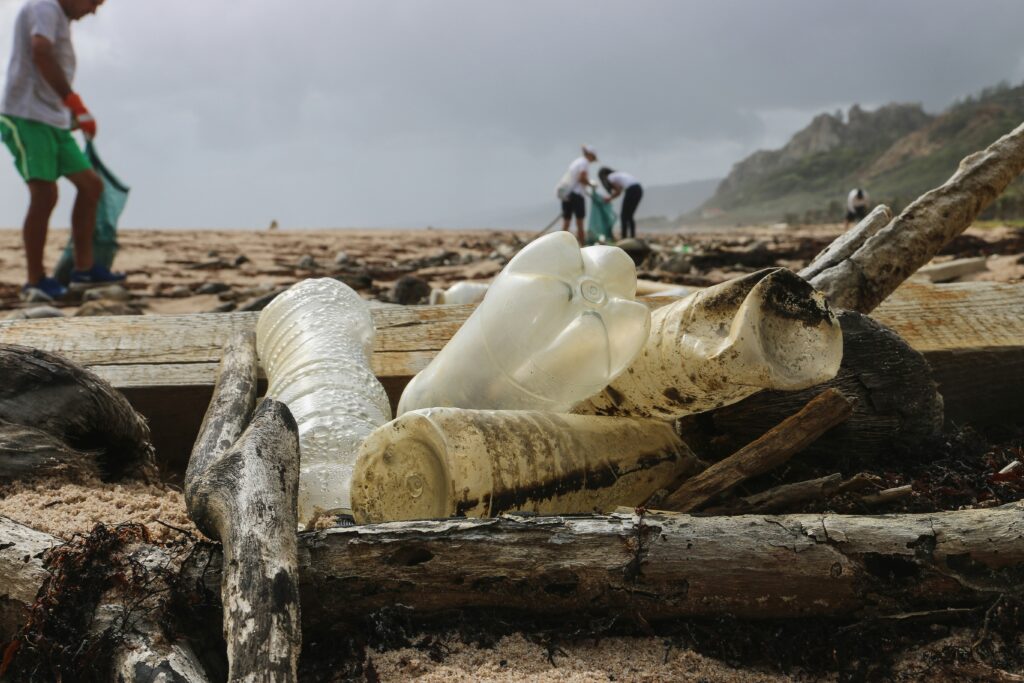
Extended Producer Responsibility (EPR)
Another vital aspect of BSL’s contribution is through Activity 4, which focuses on advancing Extended Producer Responsibility (EPR) in Sri Lanka. EPR shifts the responsibility for post-consumer plastic waste management onto producers, ensuring they play a key role in the entire lifecycle of their products—from production to disposal. This strategy encourages responsible manufacturing and supports the proper collection and recycling of plastics.
In August 2024, BSL co-hosted the EPR Symposium in collaboration with the Ceylon Chamber of Commerce, bringing together industry leaders, policymakers, and environmental advocates to discuss how innovation can help advance environmental responsibility. The symposium was a unique opportunity to celebrate the progress made in promoting EPR in Sri Lanka, and to explore new frontiers in sustainable plastic management. By focusing on collaboration and innovation, BSL is helping Sri Lankan businesses take ownership of their environmental impact, ensuring that sustainability becomes a core part of their business strategies.
Looking Forward
With continued support from BSL and its partners, the PLASTICS project is paving the way for a sustainable future for Sri Lanka’s plastics industry. By promoting circular economy principles, facilitating access to green finance, and strengthening waste management frameworks, the project is helping businesses – both large and small – contribute to environmental conservation while improving their own resilience and competitiveness.
Through initiatives like the LIFE Series of projects and active collaboration with government agencies, BSL is ensuring that the private sector remains a powerful force for positive change in Sri Lanka’s journey towards sustainability.
Keep an eye on our newsletter for more updates on this transformative project, and find out how you can get involved in shaping a greener, more sustainable future for Sri Lanka.

Private Sector Commitment to Restore Sri Lanka’s Blue Carbon Ecosystems

Biodiversity Sri Lanka (BSL), in partnership with its members, government bodies, and conservation groups, continues to champion environmental stewardship through innovative restoration projects. One of BSL’s standout initiatives is the Life to Our Mangroves (LOM) project, which is dedicated to the restoration and preservation of vital blue carbon ecosystems in Sri Lanka.
The significance of blue carbon ecosystems, such as mangroves, lies in their ability to sequester large amounts of carbon, thereby playing a crucial role in combating climate change. Mangroves, with their dense root systems, stabilise coastlines, reduce erosion, and provide critical habitats for various species. Unfortunately, Sri Lanka’s mangrove forests have faced severe degradation, especially due to human activities like shrimp farming.

Plot 05

Plot 07

Planted mangroves
The LOM project, a key example of BSL’s vision for ecological conservation, began with a Memorandum of Understanding (MOU) signed between BSL and the Department of Wildlife Conservation. The Wayamba University too has come on board providing technical and scientific advice. The initial phase of this ambitious project focused on the restoration of 10 hectares of degraded land within the Anawilundawa Ramsar Wetland Sanctuary in the North Western Province. This sanctuary is a critical habitat for many species, but decades of intensive shrimp aquaculture between the 1980s and 1990s severely disrupted the area’s natural ecosystems. By the late 1990s, the land was abandoned, but the damage from artificial barriers and pond dikes had already interrupted the natural hydrological flows necessary for the area’s regeneration.
With the assistance of the Wayamba University, the project has adopted a science-based approach to restore the natural water flow in the sanctuary. By studying the land’s contours and reintroducing tidal patterns, the project has effectively allowed water levels to regulate naturally, promoting sediment deposition and preparing the land for mangrove growth. As of now, 2.95 hectares have been successfully restored with native mangrove species, and an additional 3.08 hectares are in the process of preparation and planting. Looking forward, BSL plans to rehabilitate 7.9 hectares of land with mangrove associates and dry-zone plant species to recreate the natural ecosystem that once flourished in the area.
The success of the LOM project is largely driven by an impressive public-private partnership model. BSL’s efforts are supported by a growing number of key corporate partners such as Sampath Bank PLC, National Development Bank PLC (NDB), Citizens Development Business Finance PLC (CDB), Dole Lanka (PVT) Ltd, Easwaran Brothers Ceylon (Pvt) Ltd, Dynawash Limited, Virtusa (Pvt) Ltd, LOLC Finance PLC, Dilmah Conservation, and Amana Bank. These organisations, by signing MOUs with BSL, are actively contributing to the restoration of Sri Lanka’s blue carbon ecosystems. Their involvement demonstrates how private sector engagement can enhance environmental conservation efforts, setting a precedent for future collaborations.

This collective endeavor serves as a powerful model of sustainable partnerships in environmental stewardship. Not only does the project focus on ecosystem restoration, but it also reinforces the importance of corporate responsibility in combating climate change and promoting biodiversity. Through the LOM project, BSL is setting an example of how collaboration between the private sector, government bodies, and conservation organisations can lead to meaningful, long-term environmental impact.
With further restoration efforts on the horizon, the Life to Our Mangroves project is poised to leave a lasting positive imprint on Sri Lanka’s coastal ecosystems, contributing to the preservation of biodiversity and the mitigation of climate change.
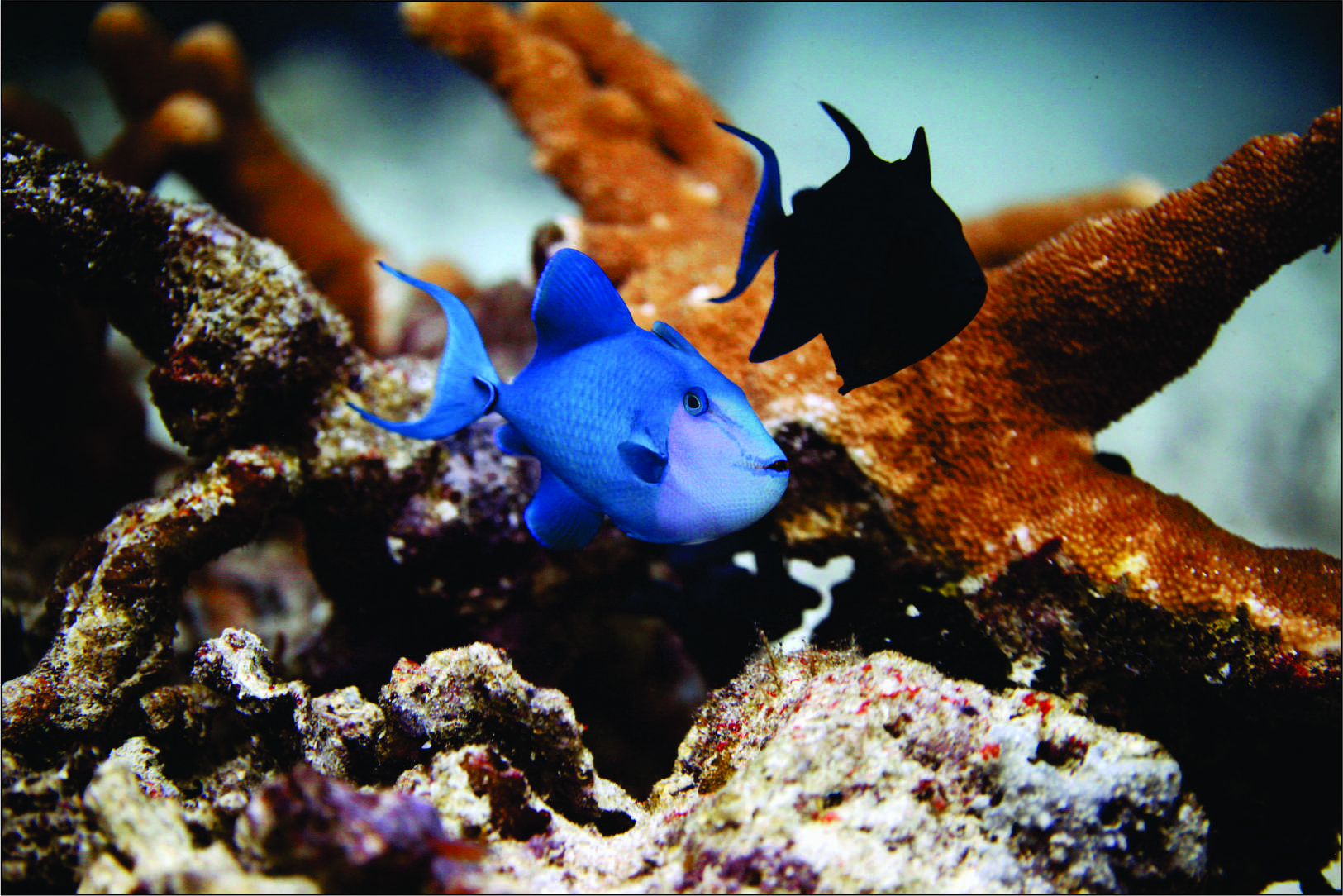
Reviving Sri Lanka’s Coral Reefs
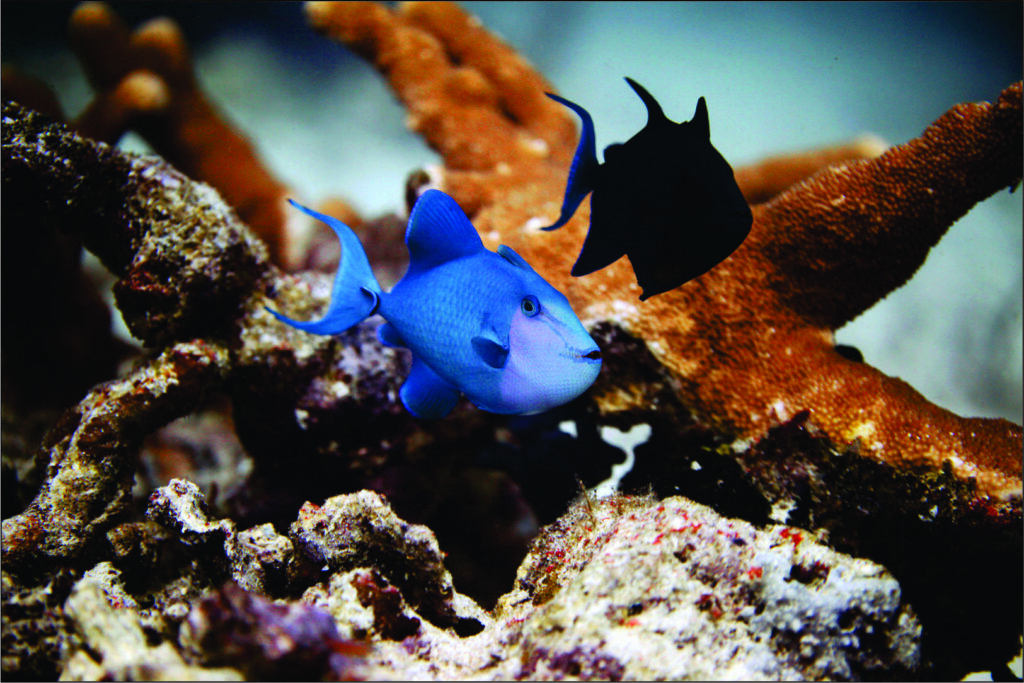
Biodiversity Sri Lanka is excited to announce the launch of the latest initiative in our “LIFE” series: called “Life to Our Coral Reefs – Project Kayankerni.” Set to commence this quarter, this groundbreaking conservation effort aims to protect the vibrant yet fragile coral ecosystems in Sri Lanka’s Kayankerni Marine Sanctuary, located in the Batticaloa District.
Coral reefs, though covering less than 1% of the world’s oceans, are home to 25% of all marine species. They provide critical ecosystem services such as coastal protection, food, recreation, and livelihoods for local communities. In the Kayankerni area, approximately 37% of the population relies on fishing and related activities for their livelihoods, underscoring the need for sustainable practices to ensure the long-term survival of this ecosystem.
Overcoming Challenges
Despite being one of Sri Lanka’s less disturbed marine environments, Kayankerni Reef faces several challenges. Unsustainable fishing practices, such as bottom-set nets, and the illegal use of explosives outside protected areas are contributing to coral damage and species loss. Agricultural runoff from the Maduru Oya basin, and nutrient-rich effluents from expanding aquaculture further threaten this delicate ecosystem. Without timely intervention, these factors could lead to further degradation of the reef.
In addition to the immediate threats posed by unsustainable fishing and pollution, climate change is emerging as a growing danger to the Kayankerni Reef. Rising sea temperatures are causing coral bleaching, a phenomenon where corals lose their vibrant colors and, more critically, their symbiotic algae, which are essential for their survival. This not only weakens the corals but also reduces their ability to support the diverse marine life that depends on them. According to research, even a slight increase in water temperature can trigger widespread bleaching events. Furthermore, ocean acidification, driven by increased carbon dioxide absorption, weakens coral skeletons, making them more susceptible to damage from storms and human activities. Without intervention, these climate-induced pressures could drastically reduce the reef’s resilience, undermining both biodiversity and the livelihoods of the local communities dependent on its health .
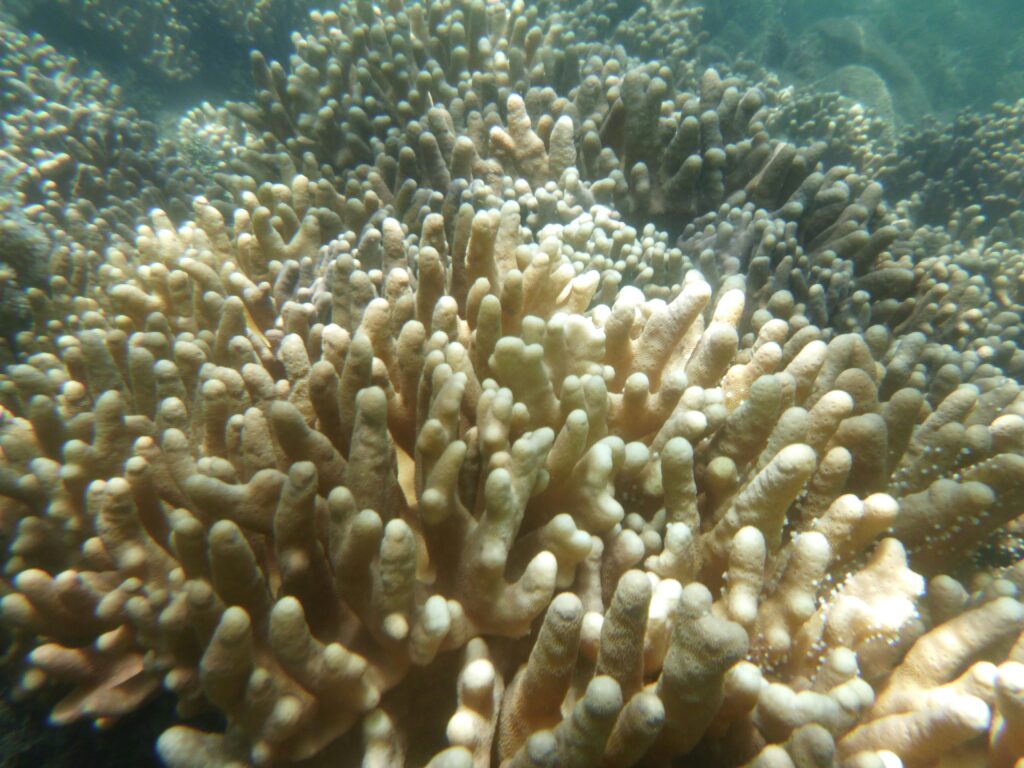
Meaningful Partnerships
In partnership with the Department of Wildlife Conservation (DWC) and Blue Resources Trust (BRT), BSL is spearheading the Life to Our Coral Reefs project as a Nature-based Solution (NbS) to address these threats. The project aims to restore the reef’s ecological balance while enhancing the livelihoods of the surrounding communities. In addition to safeguarding the coral ecosystem, the project will focus on protecting approximately 1,400 acres of mangroves and 20 acres of seagrass meadows, contributing to the overall health of the marine environment.
Guided by the IUCN Global Nature-based Solutions Standard, BSL will undertake baseline monitoring with the BRT under DWC supervision. This science-driven approach will ensure that we deliver measurable environmental and socio-economic benefits, building resilience and promoting ecosystem renewal.
We are pleased to announce that Commercial Bank, Dilmah Tea Company, and Citizens Development Business (CDB) PLC have already come on board as pioneering partners for this initiative. Commercial Bank and Dilmah officially signed agreements at our recent board meeting, while CDB completed their partnership at the BSL’s Annual General Meeting. With these valuable collaborators, BSL is ready to commence this transformative project. Our goal is to secure 10 private sector partners, creating a coalition dedicated to the preservation of Sri Lanka’s marine biodiversity.
Come join us for Coral Conservation
As we embark on this exciting journey, we invite more like-minded organizations to join us in safeguarding our coral reefs and ensuring a sustainable future for both nature and people. Join us to create a lasting impact on biodiversity and empower local communities to embrace sustainable practices that ensure the long-term health of the marine environment. Let’s build a coalition of committed partners who are passionate about marine conservation, where each contribution – be it financial support, expertise, or resources – will bring us closer to achieving our collective goals.
Join us in this crucial mission to save the Kayankerni Reef. Your partnership can help shape a brighter future, one where vibrant coral ecosystems thrive, and local communities flourish in harmony with nature. Together, we can foster a sustainable legacy that benefits both the environment and future generations.

The Kanneliya Project’s Milestone Achievement
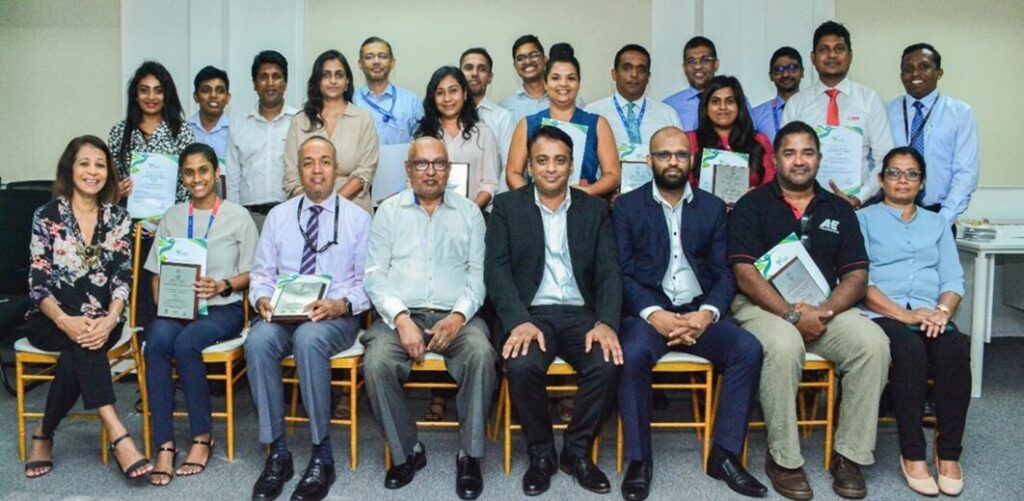
The Life to Our Forests – Project Kanneliya has achieved a remarkable milestone by receiving the prestigious Ecosystem Restoration Standard Award from Preferred by Nature. This recognition, awarded on July 8, 2024, highlights the project’s commitment to sustainable land use and effective ecosystem restoration practices.
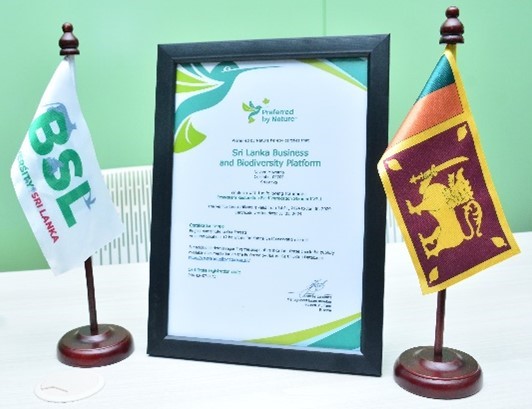
Ecosystem Restoration Verification Process
The journey towards this award began with a rigorous Ecosystem Restoration Verification Audit conducted by Preferred by Nature on January 19-20, 2024. This audit involved a thorough assessment of the restoration efforts at the field level, including documentation reviews, field observations, and interviews with key stakeholders such as the Restoration Manager and field workers. The audit team found no significant nonconformities, affirming that the project’s restoration practices are scientifically sound and verifiable. During the second day of the audit, Mr. Naalin Perera from IUCN joined the BSL team to monitor ongoing maintenance work at the project site. His insights were invaluable in identifying areas for future improvement, ensuring that the project continues to evolve and thrive. This audit is notable as one of the first of its kind in Asia, showcasing Sri Lanka’s leadership in ecosystem restoration verification.
A Collaborative Effort
The award ceremony brought together all 15 project partners, including prominent companies like Access Engineering PLC and Dilmah Ceylon Tea Company PLC. Each partner received certificates recognizing their contributions to this significant ecological initiative. The independent verification by Preferred by Nature ensures that all partners’ restoration efforts align with global best practices, enhancing their credibility and attracting further recognition.This collaborative effort not only contributes to local ecological restoration but also plays a vital role in global environmental initiatives. By adhering to the Ecosystem Restoration Standard, project partners can demonstrate their commitment to responsible land management and sustainable business practices, driving positive environmental impacts across the region.
A Bright Future for Ecosystem Restoration
The success of the Kanneliya Project serves as an inspiring example of how effective partnerships and rigorous standards can lead to meaningful ecological restoration. With the recent recognition from Preferred by Nature, this initiative not only showcases the importance of sustainable land use practices but also highlights Sri Lanka’s leadership role in the global movement for ecosystem restoration.
As we celebrate this achievement, it is clear that continued collaboration and adherence to best practices will be essential for sustaining our forests and ensuring a healthier planet for future generations. Let us build on this momentum, inspiring others to join the cause and contribute to the vital work of restoring our ecosystems.
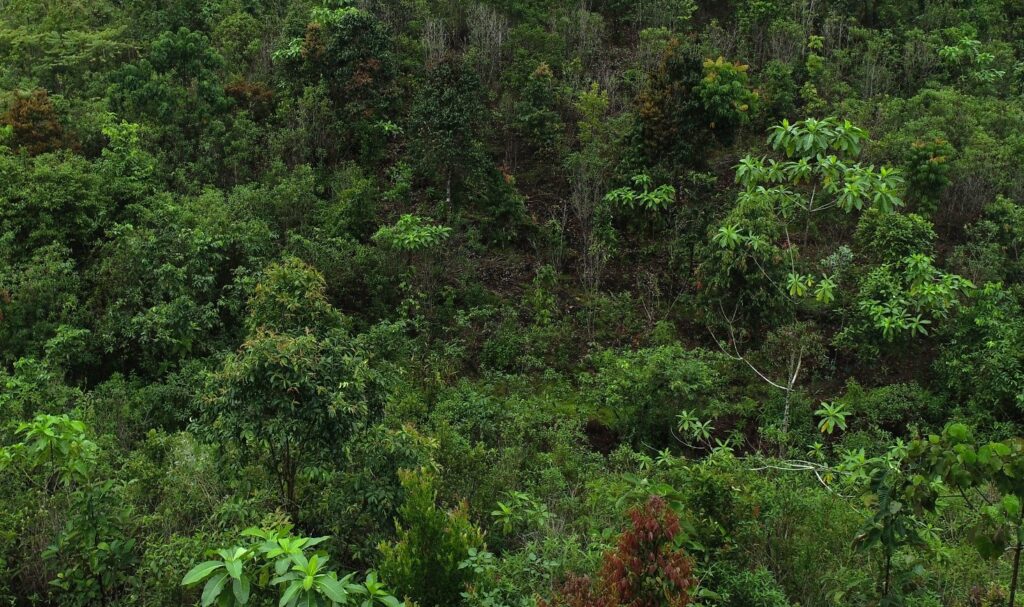

Join the Wave: Let’s Keep Sri Lanka’s Beaches Beautiful

The “Life to Our Beaches” project, initiated by Biodiversity Sri Lanka and the Marine Environment Protection Authority (MEPA), is an inspiring initiative dedicated to preserving and cleaning Sri Lanka’s beautiful coastal areas. This annual project focuses on enhancing the cleanliness and ecological health of our beaches, ensuring they remain pristine and welcoming for both residents and tourists.
This year, the project has received an exciting boost with the Citizen Development Bank (CDB) joining as a new partner, demonstrating their commitment to environmental conservation. Together, we aim to make a significant impact on three major beach areas: Dehiwala, Wellawatta and Mt. Lavinia.
The “Life to Our Beaches” initiative is not only about removing waste but also about educating the public on the importance of protecting our marine environment. The combined effort of BSL, MEPA, and CDB is expected to inspire more organisations and communities to participate in maintaining these beautiful coastlines. By bringing together the expertise and resources of these organizations, the project is set to make a lasting difference, ensuring that our beaches remain safe and clean.
As we continue to expand our efforts, we invite more private sector companies to join us in this vital mission. Your participation can significantly amplify our impact, fostering a collective commitment to safeguarding our coastlines. Together, we can champion sustainable practices, inspire community engagement, and ensure a cleaner, healthier environment for future generations. Join us in making a difference today!



